

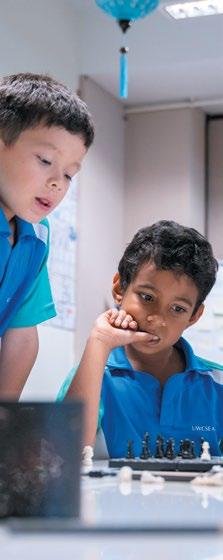












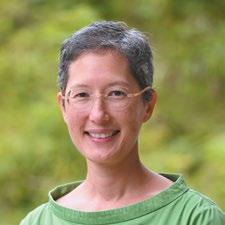
On behalf of the Board of Governors, I am pleased to present the UWCSEA 2023/2024 Community Report, which provides an overview and reflection of the College’s achievements over the last school year and tells the story of our community, united in purpose and committed to our mission. 2023/2024 marked the first full year of our UWCSEA Strategy to 2030 which was developed with community input in the prior year. Our strategy reiterates our commitment to our educational programme through focusing on exceptional people and teams, immersive learning for our students, a sense of belonging for all in our community, and harnessing our innate sense of curiosity and exploration to continue to innovate in education and deliver our mission.
During the year we continued to progress Dover Campus planning with Singapore Government agencies. As a result, we were able to announce, in November 2024, our planned move for the Dover community to Tengah in 2032. A key element of campus planning during the 2023/2024 academic year was the 21 Campus Design Labs that drew experts from across both our campuses to plan for the continued evolution of our educational programme. The learnings and insights from these
labs will apply to both East and Dover campuses, as well as the new planned campus in Tengah.
Our College provides a world-class education to our students through the dedication of our professional staff and leadership. In addition, our parent community, our staff, and our Governors and Board Advisors volunteer countless hours in support of our College’s Mission and values. This spirit of volunteering and commitment to our College is part of what makes UWCSEA and our community special.
Thank you to all our College community volunteers who enrich the lives of our students, help create a sense of belonging for all in our community, and help to further embed us in Singapore, our home. Thank you to our Governors and Board Advisors who work with College leadership to ensure the College operates at the highest standards of governance. Thank you to all our staff who teach, nurture, grow and support our students in so many different ways. And thank you to our students for aspiring to embody and enact our UWCSEA values and in whose service we all stand.
Sincerely,
Sulian Tay
Welcome to the Community Report for the 2023/2024 school year. Each year the Community Report tells a story of community success and achievement, and last year was no exception.
Our eyes are always on our students and our mission, and in what follows these remain uppermost in our focus in ways that are hard to capture without seeing the laughter and richness of school life in the College each day. We are continuing to provide a world-class education in the context of an ever-more urgent mission to make education a force to unite people, nations and cultures for peace and a sustainable future. We seek to preserve the best of the old, of what we have learnt over the last 50+ years, while thinking proactively about longterm changing needs, being open to short term opportunities, and remaining sensitive to immediate individual needs.
In terms of learning, we know that with the intersection of technological change, social change, political change and climate change, the future world of work will be vastly different from now, and complex challenges such as the climate crisis require bold and innovative changes in education. So we have been delighted to partner with the IB as they review and innovate the IB Diploma Programme for the future, and to develop a pilot IB Systems Transformation: Leadership for Change course where students will learn how to navigate these complex systemic challenges effectively, and how to leverage transdisciplinary expertise to generate innovative and empathetic solutions. Preparation for the course was finalised in 2023/2024 so the first cohort of Grade 11 students could begin in August 2024. Perhaps the most exciting aspect of this mission-aligned development is that it has the potential for a global reach, so we can influence far beyond our Singapore context.
Another initiative in the 2023/2024 school year has been to further develop our Internships Programme. We have started with over 80 internship posts from 26 companies such as Bayer, HBO, Singapore Airlines, Goldman Sachs, JP Morgan, Shopee, PWC. These are now forming part of a significant Career Programme for our students, which will further differentiate us from other international schools in Singapore.
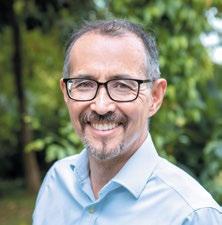
A very significant process in the year in review has been the time working with the Singapore authorities to determine the future of our Dover Campus, whose lease expires in 2030. We’ve been grateful to be recognised as partners and engage in deep discussions about possibilities for the future. Writing this reflection in December 2024, we now know that this work resulted in the offer of a spectacular new site in the new eco-town of Tengah, near the Jurong Innovation District—and in the 2023/2024 academic year we laid the groundwork for this decision through engagement with the Urban Redevelopment Authority, the Economic Development Board, NParks, the Land Transport Authority, the Building Construction Authority, the Ministry of Education and several commercial providers to scope possibilities for the coming decades of transformative education. We fully intend to implement all the learning we have from our recent sustainability awards (Platinum Super Low Energy re-accreditation for both Campuses) not just for us, but to influence the Singapore building landscape. All this adds up to an extraordinarily exciting opportunity, which will be a focus for the next decade, and we look forward to sharing more details as they emerge.
Our connections with Singapore have also broadened and deepened, with Singaporean public figures such as Janedas Devan and Corinna Lim speaking at the College, with students attending community events through the Ministry of Culture, Community and Youth (MCCY), and also representation of the Advisory Council for Community Relations in Defence. We were also delighted to be presented four Governance awards at the Charity Transparency Award 2023 by MCCY Minister, Edwin Tong.
I've picked out a few things here, and there are many others listed in this report, but none of these really capture the energy and sheer joy that you will see on campus, as our students engage in meaningful and authentic learning, equipping them for lives that will leave a lasting contribution to making the world a more sustainable, more peaceful place.
We are grateful for your ongoing support.
Nick Alchin
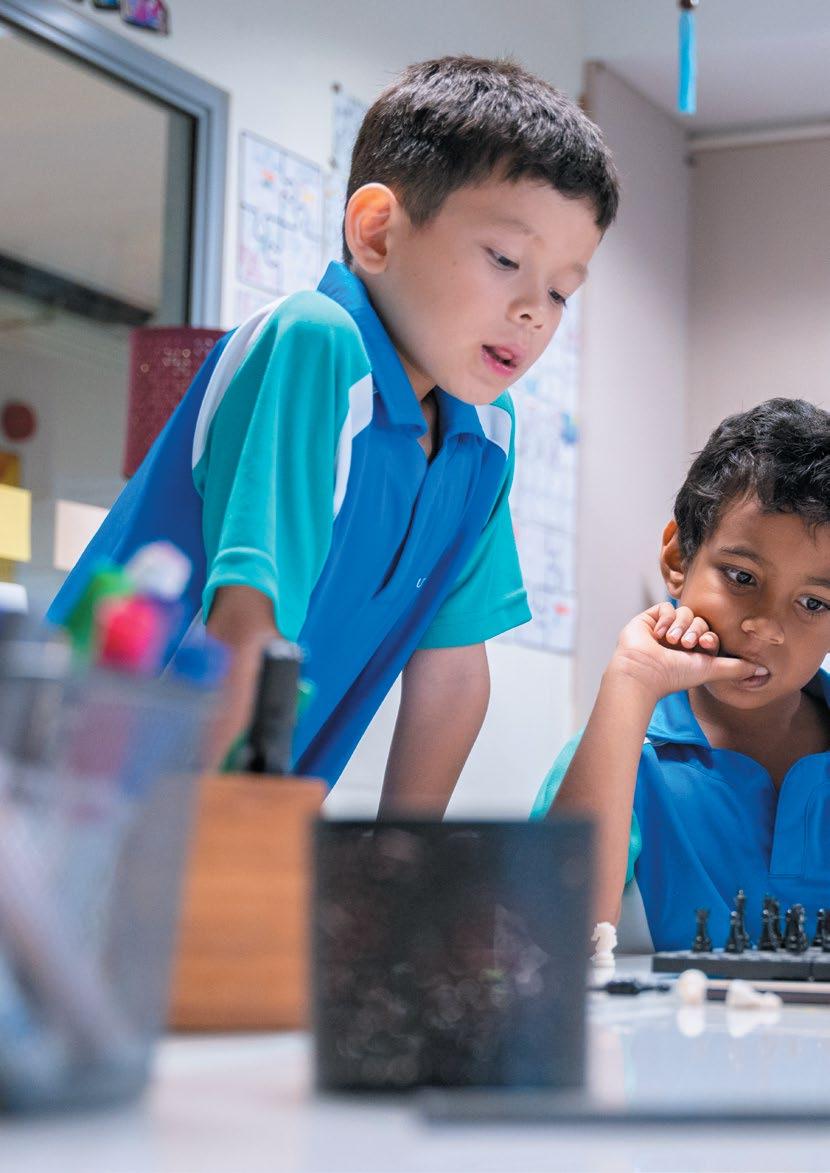
"We continue to deliver a world-class education that unites people, nations, and cultures for peace and sustainability. Building on over 50 years of experience, we balance preserving tradition with proactive innovation, addressing evolving global and individual needs."
NICK ALCHIN, HEAD OF COLLEGE, UWCSEA

Because UWCSEA is driven by its mission, values and educational goal, we create an environment that is underpinned by wellbeing and learning principles, and provide a holistic Learning Programme through a K–12 concept-based curriculum. Our ambition is to be a leader in international education, with a worldwide reputation for providing a challenging, holistic, values-based education with an emphasis upon academic achievement, service to others, environmental stewardship, teamwork and leadership.
UWCSEA Guiding Statements
Because UWCSEA is driven by its Mission, Values and Educational Goal, we create an environment that is underpinned by Wellbeing and Learning Principles, and provide a holistic Learning Programme that develops the Qualities, Skills and Mission Competencies that enable students to live the Mission throughout their lives.





































































































































































































































































Our culture of care creates a shared commitment to cultivate wellbeing for all members of our community. While we know that feelings of wellbeing are personal and vary between individuals, the College is responsible for providing the conditions for community wellbeing to flourish. This includes opportunities to feel connected, autonomous, and competent— for students, staff and parents alike—as described here:
Connected: we feel connected when we feel known, heard and cared for by others
Autonomous: we want to feel we can self-regulate our actions, where possible, and make our own meaning of events
Competent: a sense of competence arises when we feel effective and that we can continually develop craftsmanship around our work
Our Learning Principles are based on the understanding that learning is a life-long process in which the learner engages with and reflects upon information and experiences to construct new or modify existing understanding as well as develop and apply Qualities and Skills.
We know that learning is effective when learners:
• feel secure and supported: therefore, learners need a positive and respectful learning environment in which it is safe to succeed or to make mistakes and try again
• understand the purpose of the learning: therefore, goals should be explicit
• construct new understanding by building upon prior knowledge: therefore, it is important that new learning is connected to what the learner has previously experienced or understood
• listen, talk and interact with others: therefore, learners must have a range of opportunities to engage with others in a variety of situations
• construct meaning by making connections between knowledge: therefore, learning experiences need to be organised around core concepts
• are appropriately challenged: therefore, learning opportunities should align with the developmental stage and individual needs of learners
• use timely and goal directed feedback: therefore, ongoing assessment should be regular and structured in a manner that allows for specific feedback to guide the learner in constructing meaning
• have time for meaningful and deliberate practice: therefore, learners need well considered opportunities to develop and improve skills and understanding
• have ownership of their learning: therefore, learners need opportunities for self-directed learning
• think and act upon their learning: therefore, learners need opportunities to develop strategies to plan, monitor, reflect and make adjustments to learning as needed
Our Learning Programme consists of five interlinking elements: Academics, Activities, Outdoor Education, Personal and Social Education and Service. Delivered through a carefully crafted K–12 concept-based curriculum, the elements are combined to provide our students with a holistic education that develops them as individuals and as members of a global society.
Students are given multiple, age-appropriate opportunities to develop the following Qualities and Skills we have identified as required to help to fulfil our mission:
Ultimately, we hope that when they leave the College our students will be equipped with these competencies so that they are able to enact our shared mission to unite people, nations and cultures for peace and a sustainable future throughout their lives:
• Essential Literacies
• Interpersonal and Intercultural Understanding
• Peacebuilding
• Sustainable Development
• Self and Community Wellbeing
UWCSEA is a member of the UWC movement, a group of 18 schools and colleges around the world supported by a network of National Committees, made up of volunteers in around 150 countries. The College was opened on 15 December 1971 by then Prime Minister Mr Lee Kuan Yew and is the largest UWC in the movement.
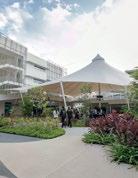
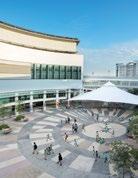

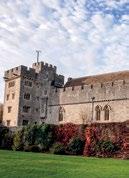
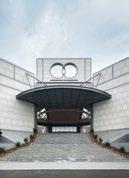
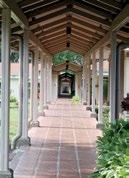
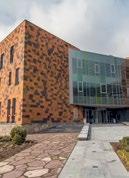
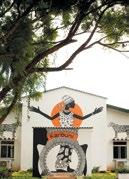
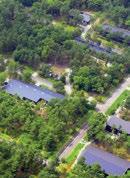
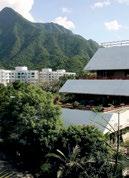
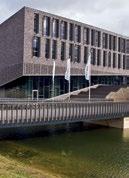
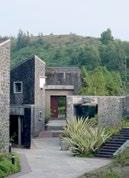
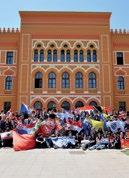
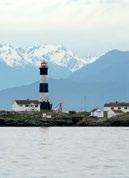



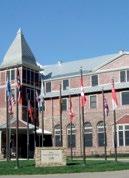
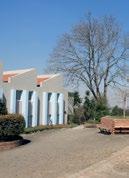
UWCSEA is committed to the highest standards of corporate governance and benefits from a highly experienced Board of Governors. The Board are committed to effective governance in support of the College's Mission and Values, and to ensure the long -term sustainability of the College and the UWCSEA Foundation. The role of the Board is to set direction, establish policies, ensure accountability, and provide leadership to support the learning environment for students at the College. The Board draws a clear line between governance and management and operates at a strategic level. It does not involve itself in the day-to-day running of the College.
The Board normally meets formally four times a year. Between meetings, Board Members are expected to serve on at least one of the six standing Board Committees.
UWCSEA Governors serve as Board members of the College (both campuses) as well as of the UWCSEA Foundation. All members serve on a voluntary basis.
Size, committees and meetings
The Board has six constituted committees:
• Audit and Risk: which oversees audit and risk matters
• Committee of Chairs: which functions as a management committee attended by the Board and Committee Chairs
• Education and Talent: which sets and oversees education and talent management strategies
• Engagement and Foundation: which oversees College engagement with alumni, parents and the community broadly, fundraising strategies and the UWCSEA Foundation
• Finance and Infrastructure: which oversees the College’s finances and its physical and digital infrastructure
• Governance: which is responsible for Board nominations and governance matters
There are also Board approved ad-hoc working groups set up to address specific issues; each with its own Terms of Reference and scope of works. These ad-hoc working groups either report to a committee or to the Board directly. In 2023/2024 the Campus Planning Working Group was dissolved and in its place, the Campus Planning Steering Committee was established to oversee all aspects of the Tenagh Campus development project.
Governors periodically re-evaluate the committee structure to ensure it is effective, strategic and forward-looking.
Board effectiveness review
A Philosophy of Governance Statement, Board Charter and Code of Conduct have been duly implemented. There are Terms of Reference for all Committees. This work underpins the strong foundations of governance that support the strategic work of the Board.
These principles support the Board to govern with confidence, charting a path of continuous improvement for the College, managing risk effectively and taking thoughtful and reasoned action based on evidence and shared expertise.
Composition
The Board consists of three groups of Governors:
• Board Elected Governors and Members – The majority of Governors are appointed by the Board itself through a rigorous selection process. Many Board Elected Governors are parents of current students of the College. To ensure the Board benefits from independent thinking, there may also be non-parent Governors
• Ex Officio Governor and Member – the Head of College
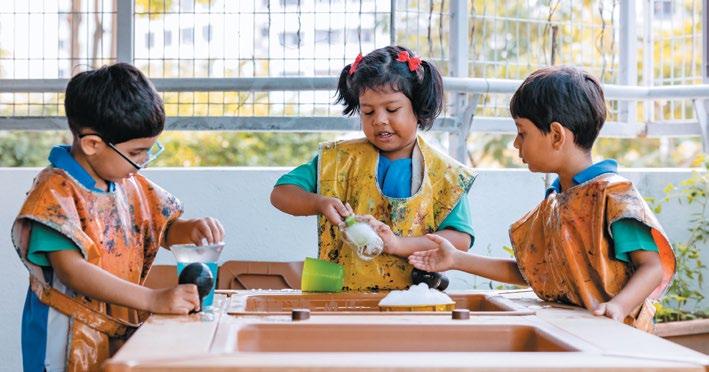
• Community Elected Governors and Members – These Governors and Members are elected directly by their constituencies and include two parent-elects and two academic staff-elects, one from each campus. The Board is also supported by a group of Board Advisors.
Board Elected Governors are recruited through a robust process that responds to clearly defined skill requirements necessary for the Board. Most candidates are first appointed as Advisors to Board Committees.
There is a comprehensive and thorough induction programme for all Advisors and Governors.
Governors serve a maximum of two consecutive, three-year terms. Only the Board Chair may serve up to one additional year of service, should they be appointed as Chair during their tenure.
The College and the Board holds the Governors and Advisors to a high standard. At the end of each of their terms, Governors and Advisors complete a self evaluation which is then shared for 360 feedback with fellow Governors, Advisors and members of the College Leadership Team.
The Board has put in place procedures for Board members and staff to declare actual or potential conflicts of interests on a regular basis. Board members abstain and do not participate in decision-making on matters where they have a conflict of interest.
The College has a Whistle Blowing policy through which members of the UWCSEA community may, in confidence, raise concerns about possible wrong-doing or improprieties in financial or other matters within the organisation. The Board thoroughly and appropriately investigates matters brought to its attention through the policy and takes appropriate follow-up action.
The Board adheres to the College’s policies on corporate and individual behaviour, including the Code of Conduct, responsibilities set out in the Board Charter and Confidentiality Agreements.
UWCSEA is also committed to regulatory compliance and reporting requirements determined by our structure and location in Singapore, including stipulations set out by ACRA, the Commissioner of Charities and the Committee for Private Education.
UWCSEA’s Governance Evaluation Checklist Financial Statements and Annual Reports can be found via the Charity Portal website.

Sulian Tay
Board Chair
Board Elected Governor and Member Chair, Committee of Chairs

Sajjad Akhtar
Board Elected Governor and Member Chair, Governance Committee Committee of Chairs

Nick Alchin
Ex-Officio Governor –Head of College Education and Talent Committee Engagement and Foundation Committee Finance and Infrastructure Committee Governance Committee

Brian Arcese
Board Elected Governor and Member Finance and Infrastructure Committee

Heather Carmichael
Board Elected Governor and Member Chair, Education and Talent Committee Committee of Chairs

Daire Dunne
Board Elected Governor and Member
Chair, Engagement and Foundation Committee Committee of Chairs

Sharon Heller
Board Elected Governor and Member
Education and Talent Committee

Seng Chee Ho
Board Elected Governor and Member
Education and Talent Committee

Anthony Hodge
Board Elected Governor and Member Audit and Risk Committee

Yukiko Izumi
Board Elected Governor and Member Chair, Audit and Risk Committee Committee of Chairs

Sugandhi Matta
Community Elected Governor (Parent, East) and Member
Education and Talent Committee
Finance and Infrastructure Committee

Gayathri Nair
Community Elected Governor (Academic Staff, Dover) and Member Engagement and Foundation Committee

Jeff Plein
Board Elected Governor and Member
Audit and Risk Committee
Finance and Infrastructure Committee

Dimple Sanghi
Board Elected Governor and Member
Chair of Finance and Infrastructure Committee Committee of Chairs

Kim Teo ’76
Board Elected Governor and Member
Engagement and Foundation Committee Governance Committee

Leon Toh
Board Elected Governor and Member
Finance and Infrastructure Committee

Pamela Kelly Wetzell
Community Elected Governor (Academic Staff, East) and Member Governance Committee

Angel Wu
Community Elected (Parent, Dover) Governor and Member
Audit and Risk Committee
Kirtida Mekani
Board resignations during the year
Priti Devi (resigned 19 Nov 2023)
Brian Arcese
(appointed Governor 15 Dec 2023)
Madhumita Banerjee (appointed 7 Dec 2023)
Alain Bernasconi (appointed 7 Dec 2023)
Charmaine Chin
Shine Ding (appointed 7 Dec 2023)
Priyanka Dinghra (appointed 13 Jun 2024)
Varun Dutt
Jean Sung (resigned 21 Jun 2024)
Luke Furler
Anthony Hodge
(appointed Governor 15 Sep 2023)
Neeti Jain (resigned 21 Jun 2024)
David Katz (appointed 7 Dec 2023)
Brian Lim (appointed 7 Dec 2023)
Mara McAdams
Ijlal Naqvi
Chas Pope
Rahul Sahgal (appointed 7 De 2023)
Saumitra Shivastrava (appointed 28 Sep 2023)
Penny Shone (resigned 9 Dec 2023)
Don Stokes
Warren Wu (appointed 13 Jun 2024)
Betty Yang
Audit and Risk Committee
Yukiko Izumi, Chair (appointed 1 May 2023)
Luke Furler
Anthony Hodge
Jeff Plein (resigned 23 Nov 2023)
Angel Wu
Betty Yang
Education and Talent Committee
Heather Carmichael (Chair)
Nick Alchin
Madhumita Banerjee
Shine Ding
Seng Chee Ho
Sharon Heller
Mara McAdams
Sugandhi Matta
Ijlal Naqvi
Engagement and Foundation Committee
Priti Devi, Chair (retired 19 Nov 2023)
Daire Dunne, Chair (appointed 28 Sep 2024)
Nick Alchin
Varun Dutt
Kirtida Mekani (Chair of Foundation and Investment Disbursement Matters, Independent Director)
Gayathri Nair
Rahul Sahgal
Penny Shone
Jean Sung (retired 21 Jun 2024)
Kim Teo ’76
Finance and Infrastructure Committee
Dimple Sanghi (Chair)
Nick Alchin
Brian Arcese
Charmaine Chin
Brian Lim
Sugandhi Matta (appointed 9 Nov 2023)
Jeff Plein (appointed 28 Sep 2023)
Leon Toh
Governance Committee
Sajjad Akhtar, Chair
Nick Alchin
Alain Bernasconi
Neeti Jain
David Katz
Don Stokes
Kim Teo ’76
Pamela Kelly Wetzell
Committee of Chairs
Sulian Tay, Chair (appointed 1 Oct 2023)
Sajjad Akhtar, Vice Chair
Heather Carmichael
Priti Devi (retired 19 Nov 2023)
Daire Dunne (appointed 28 Sep 2024)
Yukiko Izumi (appointed 1 May 2023)
Dimple Sanghi
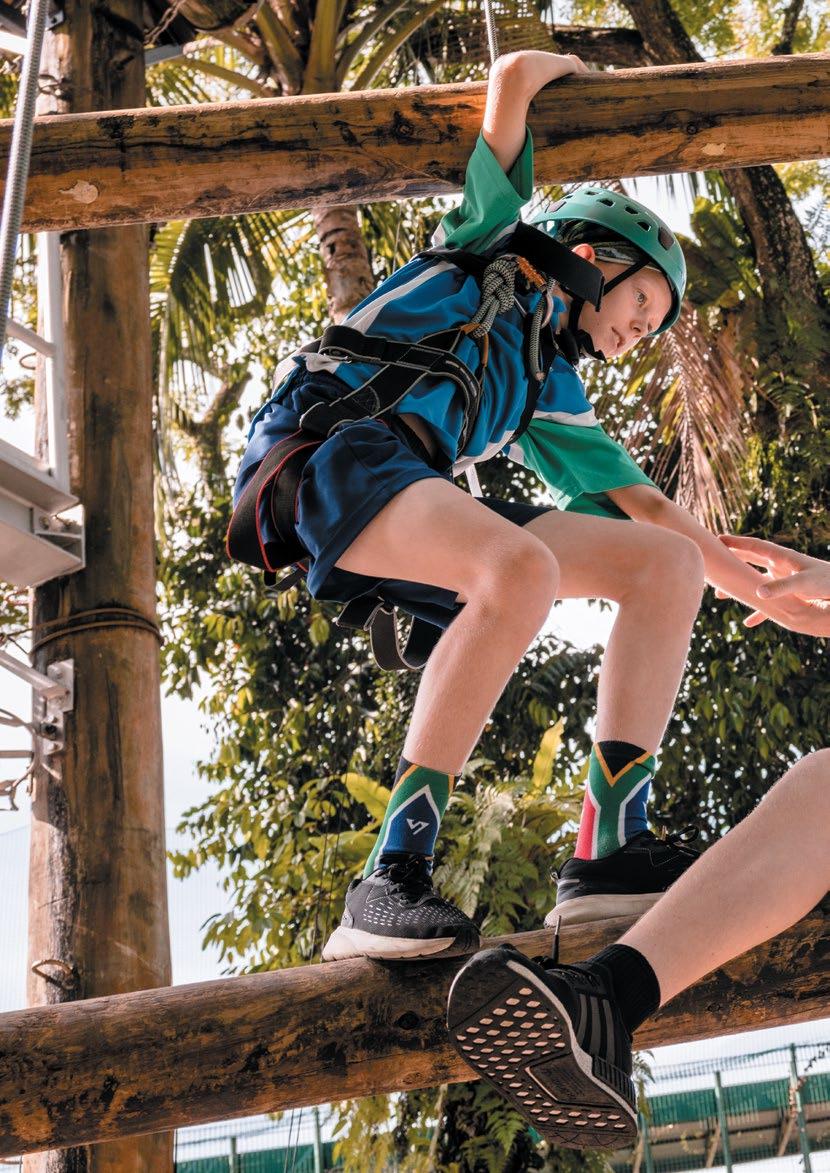
"
Transformation is a journey of perseverance and unity, and there is no better way to embark on this journey than by recognising the significance of each individual's contribution to the broader success of the Movement."
FAITH ABIODUN, THE EXECUTIVE DIRECTOR OF UWC INTERNATIONAL AT THE UWC CONGRESS 2024

During the 2023/2024 year, the College and campuses embarked on the first year of the new College strategy for 2023–2030 and beyond. The strategic framework is to guide the College’s development over the next ten years. It aims to ensure that our students continue to receive a world-class education, supported by exceptional teachers, staff, and a diverse, inclusive community where everyone feels a sense of belonging. The strategy is deeply aligned with our UWC Mission and Guiding Statements, which emphasises the role of education in contributing to a peaceful and sustainable future for all.
Our strategy is shaped by contemporary insights into the future of learning, schools, work, and technology, ensuring that UWCSEA remains at the forefront of educational excellence and innovation. It builds on the strong foundation of the existing academic model while preparing for emerging global challenges and opportunities in education.
At its core, our strategy is driven by four Strategic Commitments, which will shape annual priorities and ensure a whole-College approach to growth and development. These commitments reinforce the institution’s dedication to:
• providing high-quality education that equips students with the skills and knowledge needed for a rapidly changing world
• supporting educators and staff in delivering outstanding learning experiences
• fostering an inclusive and diverse environment where all individuals thrive
• promoting sustainability and global unity by using education as a tool to bring together people, nations, and cultures
This development will take place with a firm commitment to maintaining academic excellence, while also exploring new possibilities that contribute to a more peaceful and sustainable future.
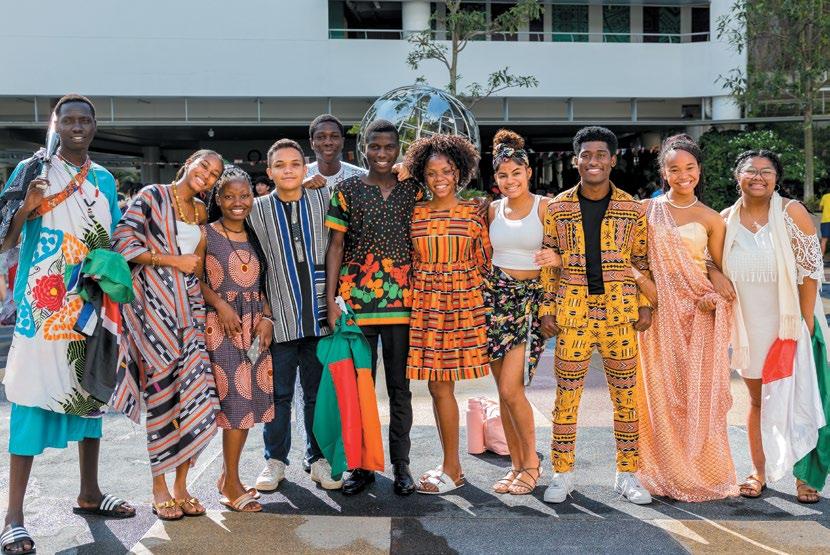
2023–2030



We will continue to provide exceptional educational experiences, guaranteeing a holistic and values-driven, rigorous education that will contribute to a peaceful and sustainable future.




We will attract, retain and grow outstanding people and teams, and build our organisational strength and capacity.
We will ensure that our students’ learning is rich in experiences, relationships, and connections to people, places, organisations and ideas.



We will create and sustain a sense of belonging for all members of our community, past, present and future.
We will leverage our sense of curiosity and pioneering spirit to drive incremental and disruptive innovation, and sustainable change.






UWC makes education a force to unite people, nations and cultures for peace and a sustainable future.















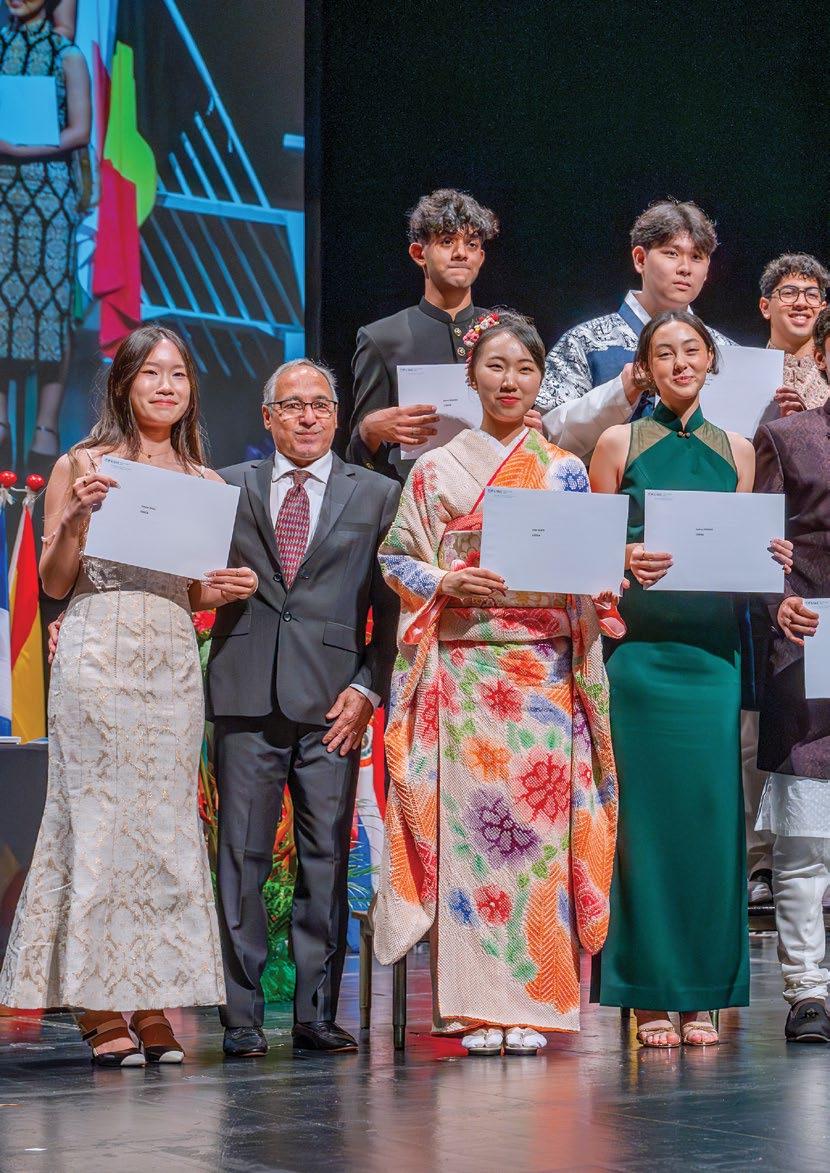
“Beyond the academic and extracurricular achievements, it is the genuine connections that we have formed with our peers and teachers that have set us apart. The community that we have created is not just a part of our past, but a legacy that will transcend place and time, reminding us that we are a part of something greater than ourselves.”
AND
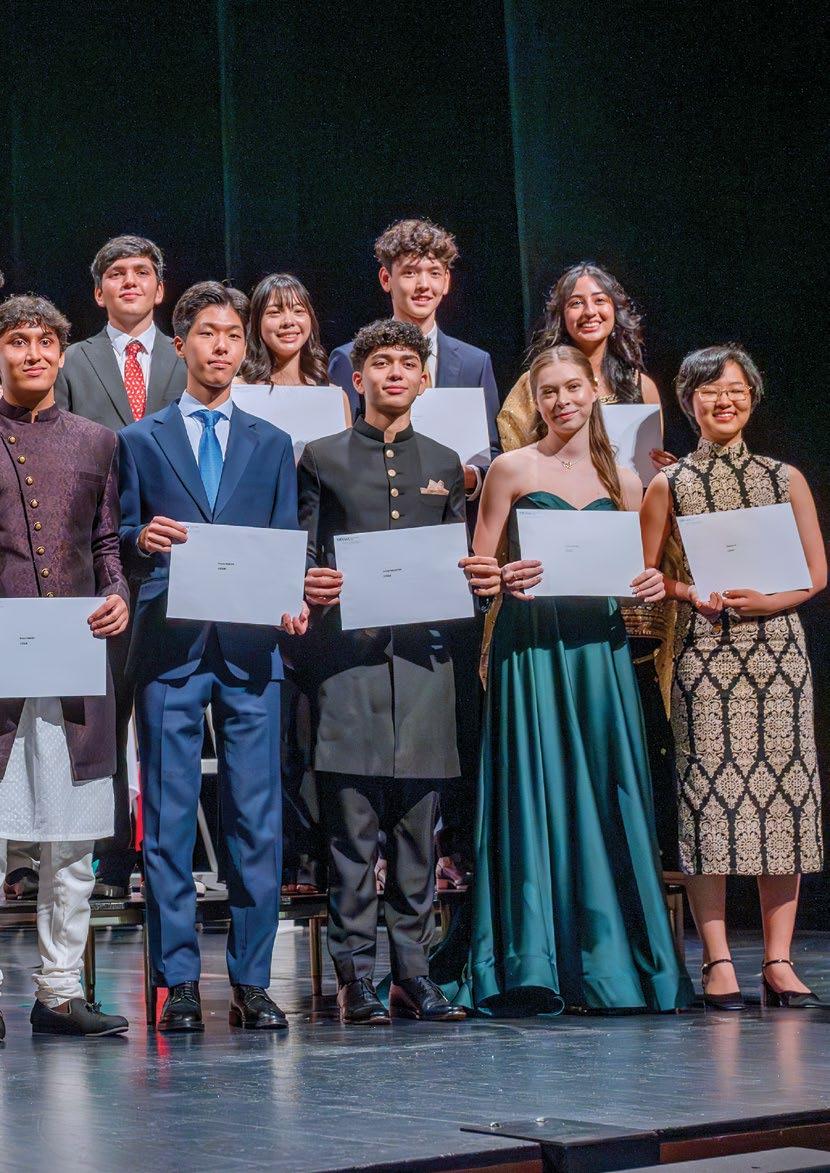
The primary goal of our guiding statements is to prepare all students with the skills, qualities, and knowledge they need to live out our mission and values beyond UWCSEA. This preparation is achieved through the UWCSEA Mission Competencies. To help students reach this goal, we provide a holistic Learning Programme designed with support from our Wellbeing and Learning Principles.
The UWCSEA Learning Programme has five key elements: Academics, Activities, Outdoor Education, Personal and Social Education, and Service. These elements help students build subject-specific knowledge, skills, and understanding, alongside the broader skills and qualities outlined in the UWCSEA Learner Profile.
Opportunities to develop the skills and qualities in the UWCSEA Learner Profile are integrated into all five elements of the programme. When a meaningful connection is identified, we intentionally focus on developing a specific aspect of the Learner Profile. This development is clearly linked to a benchmark that describes the related skill or quality. These benchmarks are used to communicate progress to teachers, students, and parents.
The five elements of our Learning Programme complement each other to create a whole that is greater than the sum of the parts. This is a carefully planned and purposeful process, where students develop understanding in disciplinary and interdisciplinary ways. For example, students gain deep disciplinary understanding in our Academic Programme, which may be applied in Outdoor Education or Service when students encounter and consider real world situations.
UWCSEA The articles in this section of the report were selected to illustrate the learning taking place across the College, highlighting both the concept-based nature of the curriculum and the intentionally interconnected nature of the five elements of our Learning Programme.
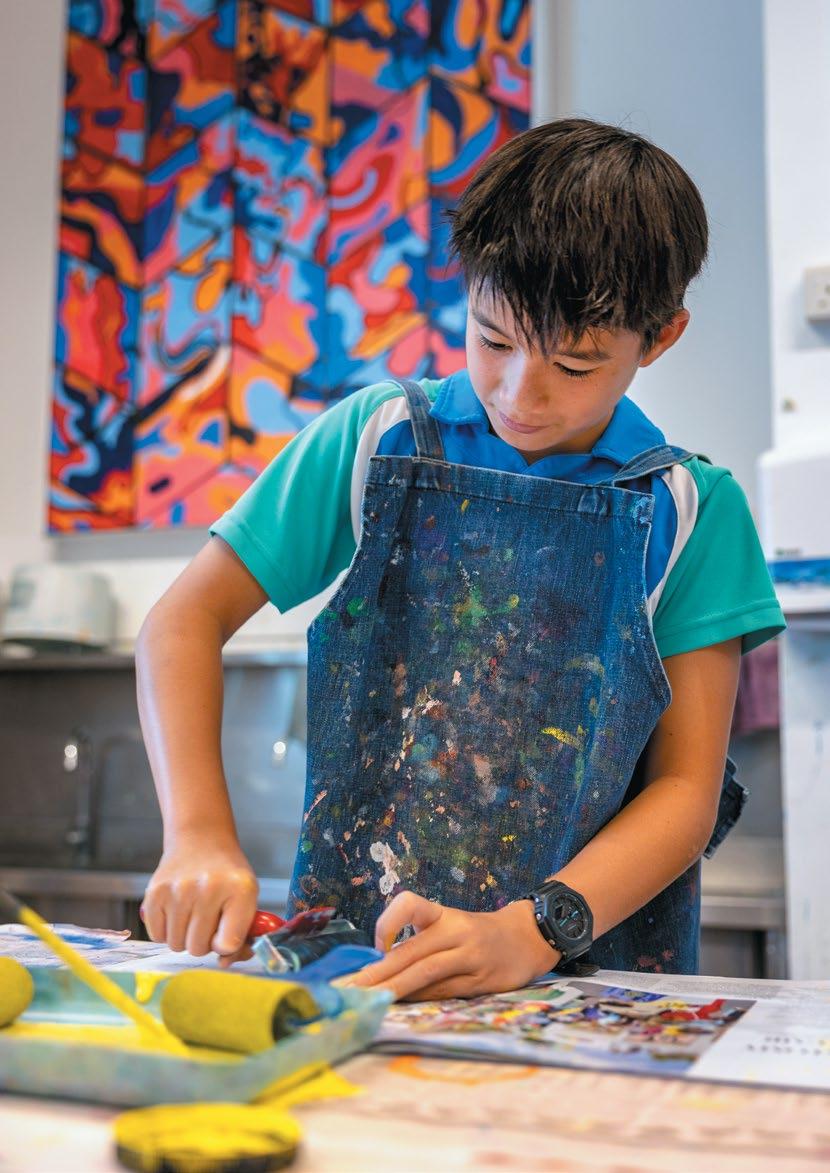
Through the Academics element of the UWCSEA Learning Programme, all students develop intellectual habits and passions that stay with them for life. Learning goals in languages, mathematics, sciences, the Arts, humanities, technology and physical education build progressively through each grade, preparing students for the next academic challenge and for life beyond school. The conceptual nature of our curriculum, which focuses on ideas that can transfer, supports students who are joining us from different countries, educational systems and backgrounds. The power of a concept-based curriculum is that conceptual understandings are big transferable ideas that are not locked in by time or place and as such, can also be applied by students in new places and contexts when they move on from UWCSEA.
Innovation in education has always been a focus for UWCSEA and this year in review was no different. The focus on preparing our students for a future world where political, economic and environmental factors will be vastly different was a key driver behind two significant decisions announced in the previous academic year (2022/2023). These were; the decision to retire the IGCSE’s from the Grade 9 and 10 Programme across the College; and a decision to partner with the International Baccalaureate on an exciting pilot programme for the IBDP. In the 2023/2024 academic year significant work was done on these two initiatives with 9/10 curriculum development and cross-campus alignment and an exciting new course, UWC Perspectives was added to the G9/10 offering. This course reflects the College’s Mission, supporting students’ critical thinking and wellbeing through a holistic approach. Students joining UWCSEA in Grade 9 in August 2025 will no longer be offered IGCSE as an option and will enter the UWCSEA Grade 9 programme.
In 2023/ 2024 significant work was also done to finalise the new IB pilot course, Systems Transformation:Leadership for Change, in preparation for the first cohort of students to begin in August 2024. A total of 54 students were enrolled on the course at the start of the 2024/2025 school year.
curriculum development in support of immersive learning and a commitment to creating a sense of belonging for all
Significant advances in a mission-aligned curriculum and consistency in innovation and inclusivity practices were also a focus of the 2023/2024 year, with work being done to further the College’s commitment to a cohesive and supportive learning environment that contributes to a sense of belonging for all. Initiatives were focussed on aligning all grade levels with a shared, concept-based approach that reflects the College’s mission.
A College-wide review of the curriculum structure served to clarify and strengthen the concept-based approach used across grades. The end result of this review was a more streamlined and cohesive curriculum that helps teachers plan lessons with clearer objectives and outcomes.
Heading into the 2024/2025 academic year, a refreshed curriculum policy now defines the core concepts, knowledge and skills and provides a shared framework for teachers. This framework supports a mission-aligned and consistent approach to teaching, and offers greater transparency to parents and students regarding the skills and knowledge gained at each grade level.
In addition to the above, the school year 2023/2024 saw many other strategically aligned projects across the curriculum including several updates in key areas of the UWCSEA curriculum made to better reflect the College’s mission and values. These included:
• Service, Sustainability, and Peace (SSP): The curriculum has a refreshed and well-defined structure emphasising global citizenship and community engagement
• Digital and Information Literacy (DIL): An updated curriculum equips students with essential skills for navigating today’s digital landscape
• Personal and Social Education (PSE): Enhancements were made to ensure students develop the personal skills necessary for wellbeing
• Literacy (K–Grade 8): Updates in primary literacy include improved resources for handwriting, phonics, and reading, supporting early language development and opportunities for trans-languaging
A big step to further inclusivity practices was the introduction of a new Access and Challenge Policy, across the College which outlines an inclusive approach that recognises ALL students have unique learning needs. This tiered model of support is designed to help teachers adapt their lessons for diverse needs. Guided by the Universal Design for Learning (UDL) principles, the policy enables teachers to remove learning barriers and provide tailored support for students with varying abilities, including neurodiverse students and those with advanced skills.

In May 2024, 603 UWCSEA students were awarded the IB Diploma. The College achieved a pass rate of 98.3%, and this section outlines the examination results and university destinations of the Class of 2024.
IB Diploma students Average IB Diploma score
135
Students awarded a Bilingual Diploma
IB Diploma score
25
Languages in which Bilingual Diploma was awarded Bemba; Bulgarian; Burmese; Chinese; Dutch; English; Estonian; Filipino; French; Georgian; German; Hebrew; Hindi; Hungarian; Indonesian; Japanese; Khmer; Korean; Macedonian; Mongolian; Slovene; Spanish; Swahili; Swedish; Thai
IB Diploma five-year comparison
100% of graduates in the Class of 2024 will go on to university; 87% directly after graduation, with the rest first taking a Gap Year or completing National Service.
UWCSEA High School Diploma Graduates
Countries where graduates enrolled in university Australia; Belgium; Canada; Denmark; France; Germany; Hungary; India; Indonesia; Ireland; Italy; Japan; Netherlands; New Zealand; Philippines; Qatar; Singapore; South Korea; Spain; Sweden; Switzerland; United Kingdom; United States
Below is a list of universities that UWCSEA students were accepted to between 2022 and 2024.
Asia
Ahmedabad University (India)
Ateneo de Manila University - Quezon City (Philippines)
ESSEC Business School (Singapore)
Gadjah Mada University (Indonesia)
Hiroshima University (Japan)
International Christian University (Japan)
Keio University (Japan)
Keio University Shonan Fujisawa Campus (Japan)
Korea University (South Korea)
Nanyang Academy of Fine Arts (Singapore)
Nanyang Technological University (Singapore)
National University of Singapore
Ritsumeikan University - Osaka (Japan)
SIM Global Education (Singapore)
SIM University (Singapore)
Singapore Management University
Singapore University of Technology and Design
Sophia University (Japan)
The Hong Kong Polytechnic University
The Hong Kong University of Science and Technology
The University of Hong Kong
Yonsei University (South Korea)
Australia/New Zealand
Flinders University
Macquarie University
Monash University
Southern Cross University
The Australian National University
The University of Queensland
The University of Sydney
The University of Waikato (New Zealand)
University of Melbourne
University of New South Wales
University of Otago (New Zealand)
Concordia University
Emily Carr University of Art and Design
Huron University College at Western
King’s University CollegeWestern University
Langara College
McGill University
Queen’s University
Simon Fraser University
St. Francis Xavier University
The University of British Columbia
The University of British ColumbiaOkanagan
University of Saskatchewan
University of Toronto
University of Victoria
University of Waterloo
Western University
Wilfrid Laurier University
Georgetown University Qatar
New York University Abu Dhabi
Northwestern Qatar
University of Wollongong in Dubai
The Netherlands
Amsterdam University College
Amsterdam University of Applied Sciences
Delft University of Technology
Eindhoven University of Technology
Erasmus University College
Erasmus University Rotterdam
Leiden University
Maastricht University
Nyenrode Business University
Radboud University
Royal Academy of Art
Technical University of Delft
Technical University of Eindhoven
Tilburg University
University of Amsterdam University of Groningen
Vrije Universiteit Amsterdam
Catholic University of Leuven (Belgium)
College Universitaire de Sciences Po (France)
Copenhagen Business School (Denmark)
Culinary Arts Academy Switzerland
Ecole Polytechnique (France)
École hôtelière de Lausanne (Switzerland)
EHL Swiss School of Tourism and Hospitality (Switzerland)
ESCP Business School - Paris (France)
Glion Institute of Higher Education (Switzerland)
IE University - Madrid Campus (Spain)
IE University - Segovia Campus (Spain)
Institute of Political Studies Paris‘Sciences Po’ (France)
Instituto Marangoni (Italy)
Ludwig Maximilian University of Munich (Germany)
Lund University (Sweden)
Parsons Paris - The New School (France)
Politecnico Di Milano (Italy)
Public University of Navarra (Spain)
Semmelweis University of Medical Sciences (Hungary)
The American University of Paris (France)
Trinity College Dublin (Ireland)
Universidad Católica de Valencia San Vicente Mártir (Spain)
Universidad de Navarra (Spain)
Universidad San Pablo CEU (Spain)
Universita Bocconi (Italy)
University College Cork (Ireland)
University College Dublin (Ireland)
University of St. Gallen (Switzerland)
Arts University Bournemouth
Bristol, University of the West of England
Cardiff University
City, University of London
Courtauld Institute of Art, University of London
Coventry University
Durham University
Guildhall School of Music & Drama
Hartpury University
Imperial College London
Italia Conti Academy
King’s College London, University of London
Liverpool Institute for Performing Arts
London School of Economics and Political Science, University of London
Loughborough University
Newcastle University
Northeastern University London
Nottingham Trent University
Queen Mary University of London
Queen’s University Belfast
Royal Conservatoire of Scotland
Royal Holloway, University of London
Royal Veterinary College, University of London
St George’s, University of London
Swansea University
The University of Edinburgh
UCL (University College London)
University of Bath
University of Birmingham
University of Brighton
University of Bristol
University of Buckingham
University of Cambridge
University of Central Lancashire
University of Chester
University of East Anglia UEA
University of Exeter
University of Glasgow
University of Leeds
University of Leicester
University of Lincoln
University of Manchester
University of Nottingham
University of Oxford
University of Reading
University of Sheffield
University of Southampton
University of St Andrews
University of Stirling
University of Sussex
University of the Arts London
University of Warwick
University of York
American Musical and Dramatic Academy
Babson College
Barnard College
Bates College
Bentley University
Berklee College of Music
Boston College
Boston Conservatory at Berklee
Boston University
Bowdoin College
Brandeis University
Brown University
Bryn Mawr College
Butte College
California College of the Arts
California Institute of Technology
Carnegie Mellon University
Case Western Reserve University
Chapman University
Claremont McKenna College
Colby College
Colorado College
Colorado State University
Columbia School of General Studies
Columbia University in the City of New York
Cornell College
Cornell University
Dartmouth College
Davidson College
Duke University
Earlham College
Emerson College
Emory University
Franklin and Marshall College
Furman University
George Washington University
Georgetown University
Georgia Institute of TechnologyMain Campus
Hamilton College
Harvard University
Harvey Mudd College
Haverford College
Indiana University Bloomington
Ithaca College
Johns Hopkins University
Lake Forest College
Lewis & Clark College
Loyola Marymount University
Luther College
Macalester College
Maryland Institute College of Art
Methodist University
Middlebury College
Mount Holyoke College
New York University
Northeastern University
Northwestern University
Oberlin College
Occidental College
Pennsylvania State UniversityMain Campus
Pepperdine University
Pitzer College
Pomona College
Pratt Institute
Princeton University
Purdue University-Main Campus
Reed College
Rhode Island School of Design
Rice University
Ringling College of Art and Design
Rutgers University-New Brunswick
San Diego State University
Santa Clara University
Sarah Lawrence College
School of the Art Institute of Chicago
Scripps College
Skidmore College
Smith College
Southern California Institute of Architecture
St Lawrence University
St Olaf College
Stanford University
Stony Brook University
Swarthmore College
Syracuse University
Temple University
The College of Idaho
The New School
The Pennsylvania State University
The University of Oklahoma
The University of Tampa
The University of Texas at Austin
Trinity College
Tufts University
Tulane University of Louisiana
University of Arizona
University of California-Berkeley
University of California-Davis
University of California-Irvine
University of California-Los Angeles
University of California-Riverside
University of California-San Diego
University of California-Santa Cruz
University of Chicago
University of Colorado Boulder
University of Connecticut
University of Hawaii at Manoa
University of Illinois Urbana-Champaign
University of Maryland-College Park
University of Michigan-Ann Arbor
University of New HampshireMain Campus
University of Notre Dame
University of Oregon
University of Pennsylvania
University of Richmond
University of Rochester
University of San Francisco
University of Southern California
University of Virginia-Main Campus
University of Washington-Seattle Campus
University of Wisconsin-Madison
Vanderbilt University
Vassar College
Virginia Polytechnic Institute and State University
Wellesley College
Wheaton College Massachusetts
Whitman College
Williams College
Yale University

Adapted from Dunia article by Andrea Strachan, Primary School Curriculum Coordinator, Curriculum Research and Development Lead and Geraldine Brogden, Primary School Instructional Coach, Dover Campus
Every international school wants to educate their students to meet the challenges of the future that they will live and work in. At UWCSEA, this is embedded in our mission: to educate individuals to embrace challenge and take responsibility for shaping a better world. But how do we design a curriculum, and models of teaching and learning, that will help students reach these goals?
At UWCSEA, we offer a bespoke curriculum that is tailored specifically to the needs of our unique College and is responsive to the diversity found within our community of learners. It is informed by current research from around the world in connection to learning outcomes and instructional practices, and is concept-based. We also leave space for what can be described as ‘the emergent curriculum’—this is the curriculum that emerges from the child.
We are committed to finding space for this emergent curriculum, and for students to have voice, choice and autonomy over their learning. We want students to explore their own interests and passions while developing both academic and intellectual learning outcomes. Academic outcomes are content-driven, and consist of acquiring smaller bits of information (e.g., learning the alphabet or multiplication facts). Intellectual outcomes are based on the development of the mind, with an emphasis on critical thinking, reasoning and wonder. Both academic and intellectual outcomes are essential for preparing students for learning and life both today and in the future.
The World Economic Forum has identified ‘skills on the rise’ in terms of competencies that are becoming increasingly important in our changing world. These skills include creative thinking, analytical thinking, technological literacy, curiosity, lifelong learning and other essential literacies. UWCSEA has also articulated its mission competencies which are the knowledge, skills, understandings and dispositions that can be identified as demonstrations of our learning programme in action. They emerge when students, and our alumni, mobilise their learning in complex, real-world situations in service to our mission.
An example of how educators have responded to an emergent curriculum, and have created opportunities to nurture the development of our mission competencies starting in the Primary School years, is through Innovation@East (East Campus) and iTime on Dover Campus. This article takes a closer look at the role of iTime in the Dover Primary School learning programme.
iTime is an opportunity for students to explore their interests and passions while developing a broad range of skills in a self-directed, meaningful and appropriately challenging learning environment. Success is measured through the process of curiosity, exploration and discovery, rather than the outcome. Students are given the necessary tools and skills to take ownership of their learning journey, guided and mentored by a skilled teacher. Our iTime programme was inspired by the work of Kath Murdoch, an educational consultant for inquiry-based learning who will be returning to UWCSEA in February 2024 to work alongside our teachers as we continue to build and refine this component of our programme.
iTime begins in Grade 2, building upon our Infant School Discovery Time (time for collaborative, play-based, selfdirected learning). Beginning in Grade 3, students have access to our IDEAS Hub as part of iTime. In this creative learning space, they can engage with 3-D printers, robotics, coding, laser cutters, green screens, and a variety of other tools to help them bring their ideas to life. The IDEAS Hub is also open to students in Grades 3–5 during lunch times, and welcomes families and other members of our community to this space after school.
During iTime, students have the choice whether to research, develop a skill or create. Students participate in a variety of iTime ‘cycles’, which involve moving through the stages of a design process (inquiring, developing, creating and evaluating). Some cycles are entirely student-directed, while others are connected to grade-level Units of Study. For example, students in Grade 3 create a working model using electrical circuits in one of their iTime cycles as part of their unit on electricity. In Grade 4, students engage in an iTime cycle focused on creating products to sell for their Market Day. This project-based Unit of Study focuses on sustainable businesses and entrepreneurship. Our Primary School Learning Programme culminates with our Grade 5 Expo, in which children engage in a self-directed research project and apply skills developed during iTime as part of their interactive displays.
Throughout their UWCSEA journey, students are supported in engaging critically with knowledge and skills to draw out big ideas, or conceptual understandings. Teaching strategies that support concept-based teaching and learning include, but are not limited to, inquiry-based learning, play-based learning, direct instruction, and project-based learning.
Project-based learning is an expression of our UWCSEA Learning Principles in action, providing students with ownership of their learning. It immerses children in educational experiences that allow them to think critically, have opportunities to connect with real-world experts and share their learning with an authentic audience. Students gain important skills such as collaboration, communication, and the ability to transfer their learning independently. This learning model provides students with a structured but flexible way of learning that encourages them to think outside of the box and apply their newfound skills beyond the classroom.
iTime in the Primary School prepares students for project-based learning experiences that continue into Middle and High School. Examples include the Identity Project in Grade 6, Changemakers in Grade 7, and the Film Project in Grade 8. There are also elements of this approach in many of our UWCSEA courses, and it is the framework for our new IB Diploma course: Systems Transformation: Leadership for Change. In August 2024, we will welcome our very first cohort to this new course, developed in collaboration with the International Baccalaureate Organisation (IBO), and designed as a project-based learning model to be rolled out globally from 2030 onwards. In this innovative, action-oriented course, students will develop skills in leadership, design-thinking, system-thinking, and changemaking through a project-based approach, culminating in an Independent Engagement Project.
UWCSEA’s multifaceted Activities Programme provides students with opportunities to explore new interests, develop their strengths and pursue their passions. It is a vital part of student learning and provides a creative and highly individualised outlet for the personal development of each student. Importantly, the programme provides opportunities for students to interact with peers, both in their grade and from other school sections, as well as with students from outside of UWCSEA.
Founded on the notion of breadth of opportunity, our intentionally diverse programme provides students with opportunities to develop and to enjoy success beyond the classroom. Choice is a key principle of the programme. Organised around four ‘seasons’ students have opportunities to sign-up for individual seasons or make year-long commitments, depending on their interests. Many students participate in the array of offerings made available via the existing Activities Programme. Led by both UWCSEA staff and experienced external coaches. The extensive activities available to students supports their development and provides opportunities to extend their classroom passions, connecting their special interests with their learning. Like-minded students with a specific interest are also able to propose activities to the Activities Department, with a view to formalising the offering and adding it to the seasonal sign-up.
One of the benefits of the scale of UWCSEA is the sheer number of options we are able to offer students. The chart below shows the average number of activities that students in each grade take throughout the year. It indicates that students in all grades are taking full advantage of the offerings from the Activities Programme.
Programme offerings by the numbers
2,012
1,760
Student participation by the numbers
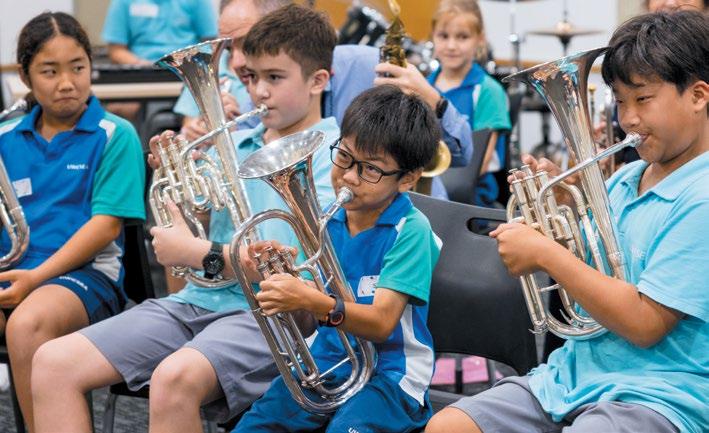
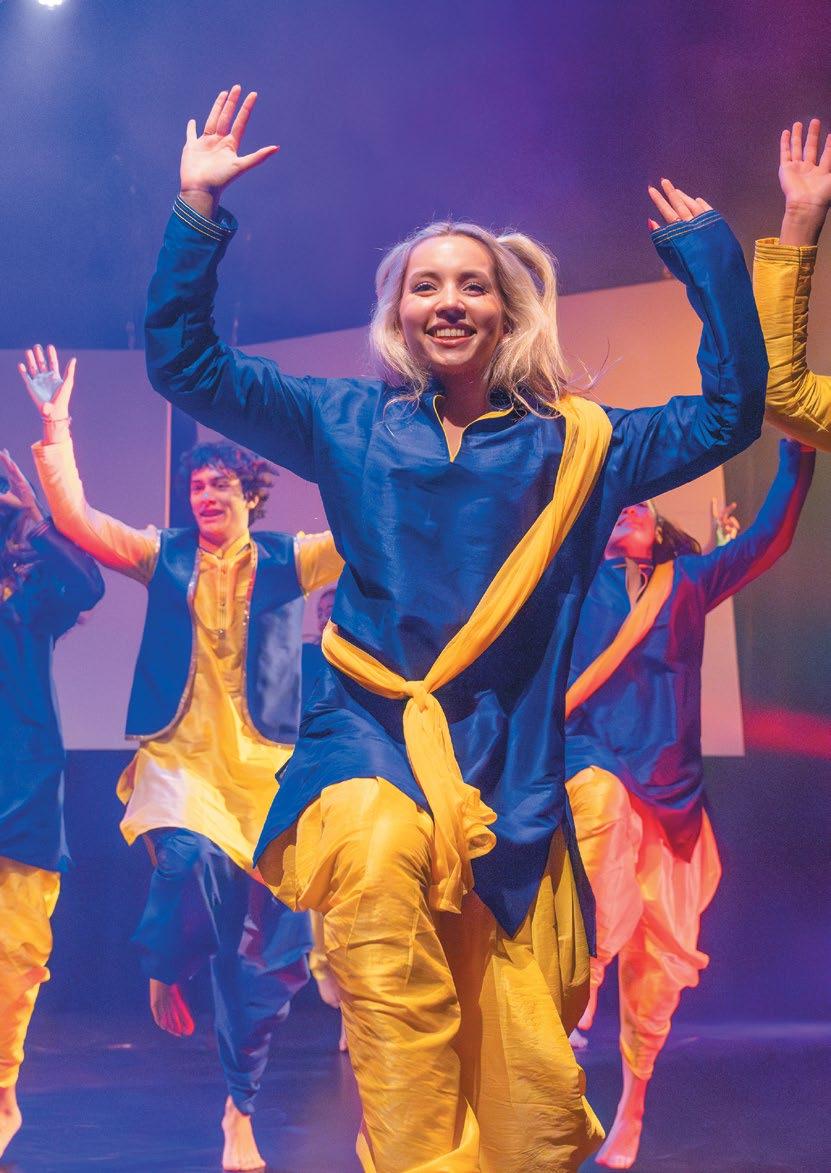
In 2022/2023 the UWCSEA Activities Departments implemented significant measures to reduce our ecological footprint, such as eliminating single-use plastics, sourcing sustainable food, and using energy-efficient lighting and air conditioning only when necessary. The departments created a shared framework for reviewing activities partners and suppliers through a sustainability lens.
In the 2023/2024 year this focus on sustainability continued in earnest with the Activities teams taking significant steps to integrate sustainability into everyday practices and demonstrating a strong commitment to environmental and community responsibility in the years ahead. One example of this is the establishing of agreed sustainable event practices, which seek to minimise environmental impact through deliberate and thoughtful event planning. Efforts include monitoring and tracking food wastage data at events in order to reduce food waste at events. Our Activities Departments continue to explore sustainable award options, and ensure that events align with the United Nations Sustainable Development Goals (UN SDGs). These initiatives aim to embed sustainability into every aspect of event management at the College.
Community engagement and partnerships is another area of Activites where a commitment to sustainability is clearly demonstrated. Building meaningful connections is central to the team’s mission and establishing partnerships with organisations such as Sun Dac and brands like New Balance reflect a commitment to fostering community initiatives. These collaborations not only support local causes but also promote sustainable practices, creating a positive ripple effect across the wider community.
Dedication to environmental stewardship and responsibility is also demonstrated by the team’s focus on green procurement, sustainable venue selection, and reducing the carbon footprint of College Activities events and operations wherever possible. These are just some examples of 2023/2024 initiatives which demonstrate how the UWCSEA Activities teams continue to set a high standard for integrating sustainability into the day-to-day operations of the Activities departments and programmes, ensuring a lasting impact on both the environment and the College community and the local Singapore community.
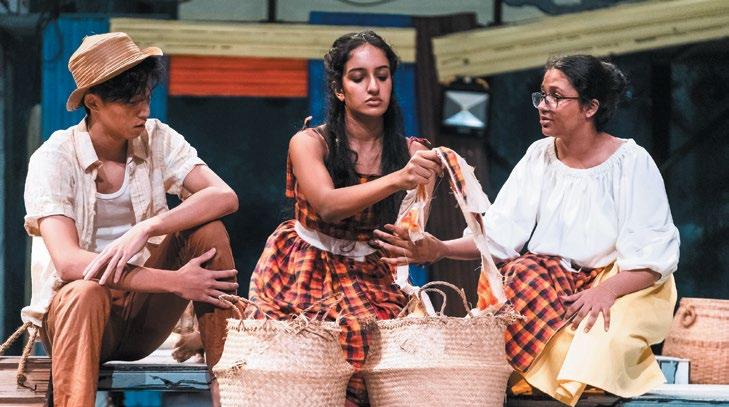
Adapted from Dunia article Once on This Island – Sail to the Caribbean with UWCSEA East’s first High School musical in five years
Imagine a magical place where the forces of love and destiny collide! Set on the shores of Haiti in the Caribbean, UWCSEA East’s retelling of ‘Once on This Island’ takes the classic fairytale ‘Little Mermaid’ and centres it on Ti Moune, a peasant girl in the French Antilles who falls in love with Daniel Beauxhomme, a grand homme, and makes a deal with the gods to save his life. With a vibrant cast of characters and spellbinding scores, this epic musical about magic and the human spirit brought the Drama, Dance, and Music Departments together on stage, for the first time in five years.
At the heart of the story is a tale of community and compassion. The resonant themes of race and colonialism are intended to spark discussions about history, culture, race and decolonisation—serving a purpose that extends far beyond the stage and reflects complex issues also tackled throughout UWCSEA’s Learning Programme. As the production team brought these complex issues to life on stage, the musical’s Director and Head of High School Arts, Anthony Kelly, was careful to maintain a focus on UWCSEA’s values in all aspects of production.
The Costume Department created a dress made entirely of upcycled plastic together with scrap fabric from donated clothes, turning the repurposed costume into a powerful message of environmental stewardship. Each thread and fabric scrap woven into the textile of the costume symbolised how history is an intricate textile of interconnected human experiences. Closely adhering to the colour scheme reflected in Caribbean local fashion and national costumes was a deliberate choice to pay homage to the rich tapestry of traditions, cultures, and identities of the region. Each hue served as a visual cue, evoking the lush landscapes, vibrant flora, and diverse cultural influences that make this region unique.
The cast spent the first few weeks of rehearsals working with students from the Caribbean to help them understand Caribbean culture and way of life; the nuances of the region’s history; the significance of Haiti; and the human experiences and spirituality that can be considered unique to this area. A team led by College DEIJ Lead Kim Cheah, and High School teacher Vikki Bell, provided valuable support. Supported by Caden Smith, a Grade 12 Bahamian student, they helped inform production decisions that reflected both authenticity and appreciation for the Caribbean culture and its people.
The set design drew inspiration from contemporary images of Haiti and the vibrant colour palette of its traditional iconic houses. It also nodded to French colonial influence with French-language signs. A beachside set was created to highlight Haiti’s reliance on fishing—the country’s key economic driver. The production process involved conscious artistic choices that aligned with UWCSEA community values, ensuring every detail resonated with authenticity and respect for Haitian culture.
"In this production, we connected to Haiti as the setting but were careful to do this within the context of a people and a place affected by natural disasters such as the 2010 earthquake. We also wanted to communicate the impact of discarded waste globally and draw a connection between the ocean depicted in this production and the global crisis of plastic waste in our seas. We did this by bringing Haiti's vibrant spirit to life and repurposing and recycling materials often found washed up on beaches."
ANTHONY KELLY, Director, East Campus
A common thread throughout UWCSEA’s Learning Programme is the idea of student choice and agency. From K–12, students are encouraged to explore opportunities, pursue interests and passions, and face their fears. In this production, Grades 9–12 students were able to try their hand at a multitude of different roles and responsibilities as both cast and crew: actors, dancers, musicians, costume designers, stage managers, lighting and sound technicians, set designers, and projection technicians. Multifaceted opportunities allowed students to explore beyond a single interest and discover roles that were new to them, and maybe even a little bit daunting. This inclusive approach to learning was a source of immense pride for the UWCSEA staff behind this production who saw their students collaborate with industry professionals over the six-month journey to shape and refine their ideas and skills.
"I was one of the two percussionists in the band. I learned a lot about working together as an ensemble, not just with the band but with the actors too. There were many times when we took our cues for the music from the actors themselves, and we learned how to adapt on the spot to make small changes on stage which was a huge challenge and something I'm really glad to have been able to experience.
"
THOMAS ALCHIN ’24, East Campus
The Outdoor Education (OEd) Programme is a powerful part of the UWCSEA experience, providing students across the school with opportunities to develop the UWCSEA Learner Profile qualities of resilience, commitment to care, self management, communication and collaboration.
The four standards of our Outdoor Education Curriculum are:
• Personal identity
• Healthy relationships
• Connectedness to nature
• Expedition skills
STRATEGIC FOCUS: expanding immersive learning opportunities with reintroduction of campus adventures and a continued focus on sustainability and safety
The 2023/2024 year saw three key areas of focus for OEd across the College, these are:
• Extended Expeditions
• Enhanced Safety Protocols
• Campus Adventure Programme
Extended Expeditions saw OEd increase the duration of expeditions from 5 days to 6-18 days for our upper Middle School and High School students. For Grades 9 and 10 significant effort was dedicated to meticulously planning and executing extended expeditions, ensuring all necessary preparations were in place. This resulted in the entire Grade 9 cohort and some Grade 10 students successfully participating in expeditions during April, May, and June 2024.
Each expedition underwent rigorous site visits with the primary objective to deliver authentic and meaningful outdoor education experiences, enabling students to engage in adventures and expeditions that extended well beyond the traditional 5-day programmes. These extended expeditions symbolised the final stage of a full "return from COVID" experience.
For Grade 8 students significant work was done to prepare for an extension of the programme to be implemented in the 2024/2025 year. Preparation was finalised for a 6-day trip to Khao Yai National Park, Thailand.
Extending these programmes for our students aligns with research that highlights the critical role of extended duration in enhancing learning outcomes and ensuring the transferability of skills. It also provides students an opportunity for deeper immersion in the programme goals of learning expedition skills, connecting with nature, and learning about themselves and others.
Another area of focus in the 2023/2024 year was continuing to enhance our already rigorous safety protocols. OEd prioritises safety through rigorous risk management, comprehensive training for teachers and students, and partnerships with reputable outdoor education providers. Through continual review, we constantly update our processes and practices to ensure we can provide the best possible learning experiences within a safe environment.
Campus Adventure Programme made a comeback in 2023/2024. This popular programme provides excellent preparation for our Junior School and Middle School students to build a culture of adventure and prepares students for expeditions as well as promoting teamwork, collaboration, and physical fitness.
All OEd trips continued to be rated under the OEd sustainability framework: Carbon Footprint and Educational Impact and Trip Behaviours. This sustainable planning assessment tool includes a review of policy and practice that recognises both the educational and operational impact of each trip. The framework provides the College an opportunity to balance decisions that ensure student safety, wellbeing and learning outcomes with an approach that minimises the environmental and social footprint of each trip wherever possible, including factoring in the impact of all the transport elements of a trip.
131 adventure trips in school year
3,220 students participated in adventure trips
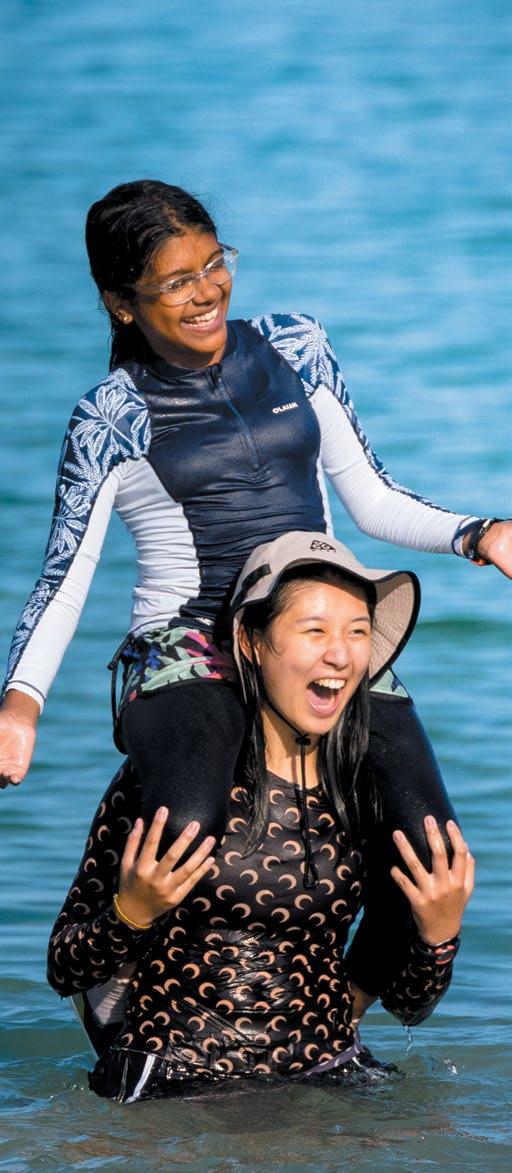
K1–2
G1
G2
Weekly outdoor experiences on campus
Overnight stay in their classroom
Overnight camp at Singapore Zoo
G3
G4
G5
Three-day in Desaru in Malaysia
Four-day trip to Pulau Sibu in Malaysia
Five-day adventure camp in Port Dickson, Malaysia
G6
G7
G8
Five-day adventure camp in Tioman, Malaysia
Five-day trip to Tioman Island in Malaysia
Six-day trip to Khao Yai National Park, Thailand
G9
G10
G11
Overseas choice of 22 trips combined with Grade 10 students
Overseas choice of 22 trips combined with Grade 9 students
Project Week—independently planned trips by small groups of students
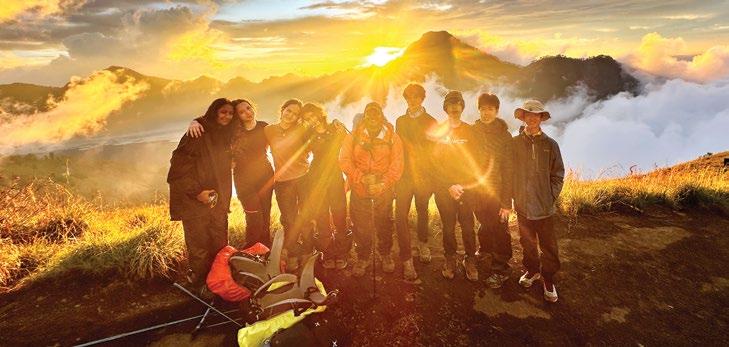
Adapted from a Dunia Article written by Dr Christopher Wolsko, Associate Professor of Psychology, Oregon State University—Cascades, and Dr Michael Gassner, Outdoor Adventure Education Consultant
At a recent Summit of the Stanford Institute for Economic Policy Research, Jensen Huang, co-founder and CEO of multinational technology company NVIDIA, was asked what advice he would give to students aspiring to be successful entrepreneurs. He discussed the high expectations that Stanford graduates have, noting that “people with very high expectations have very low resilience. And unfortunately, resilience matters in success. I don’t know how to teach it to you except for I hope suffering happens to you.” This is why, at NVIDIA, he talks openly about pain and suffering “with great glee.” He said that, “greatness comes from character,” and “character isn’t formed out of smart people, it is formed out of people who’ve suffered … I wish upon you ample doses of pain and suffering.”
By our account, the OEd pedagogy at UWCSEA is clearly synchronised with Huang’s counsel. At the end of March 2024, we accompanied a group of UWCSEA Grade 9 students on their Mt. Rinjani expedition in Lombok, Indonesia. We can attest to the fact that the trip offered a literal all-you-can-eat buffet of nasi goreng, pain, and suffering.
Of course, we’re not talking about some sort of sadistic endeavour. This was not encouraging suffering for the sake of suffering, but rather that particular variety of enjoyment and learning that comes from having to find and conquer new limits within oneself, and to persevere, alone and with others, in the midst of challenging circumstances. Mountaineers and other endurance athletes know the feeling well. As Sir Edmund Hillary once remarked about his experience of climbing: “There is something about building up a comradeship that I still believe is the greatest of all feats,” and “the intense effort, the giving of everything you’ve got. It’s really a very pleasant sensation.”
Over the past several years, we’ve been studying the outcomes of Middle and High School students’ OEd experiences at UWCSEA. We have witnessed numerous ways in which these trips have improved students’ psychological wellbeing, their internalisation of profile skills and qualities, and their sense of connection with nature. While the effects of these trips on personal, social, and even academic development are multifaceted, the cultivation of grit and resilience has always been a primary aim of the outdoor expeditions, and this year’s hike up Mt. Rinjani was a testament to that endeavour.
UWCSEA defines resilience as the ability to persevere in unfamiliar and challenging situations, with courage and confidence. Angus Lawrence, the owner of Rinjani Dawn Expeditions, our provider in Lombok, said of this trip, “I think it will be the most physically demanding activity they’ve ever undertaken.” Indeed, the ascent of the mountain required two very long days of steep hiking, carrying overnight gear, up over 2,745 vertical meters. Much of the route was on volcanic scree, turning two steps forward into one. The weather was scorching hot on the first day, with extensive travel through sun-baked grassland. Staying hydrated was challenging due to the amount of sweat. Steep sections of the trail tested some students’ fear of heights. Blisters, chafing, sunburn, aches and pains had to be managed and endured. And the overnight camp at the crater rim, while breathtakingly beautiful, was not the Ritz.
In the fading darkness of pre-dawn, one group of students we accompanied was nearing the summit, but they were almost completely spent. At least one student remarked that he couldn’t possibly go on any more. Suddenly, a student from the back of the group offered a clear and strong admonition, “Let’s go guys, let’s dig!” With those words, they found another gear that it didn’t seem like they had, and they were on their way to the top.
Two other students were on the final stretch of the climb when a teacher adroitly asked in a calm voice, “Are you okay?” One student shook her head sideways indicating “No, I am not okay.” This student was obviously struggling with the mental and physical challenge. But in almost the same moment, through an expressive glance, she conveyed such a profound sense of grit and determination that it is hard to put into words. There was steel in her eyes, and onward she went.
This is resilience, grit, and determination. This is the kind of character you want on your team, in your company, by your side.
Not everyone made it to the summit. For some students, the goal was reaching high camp at the crater rim, while others were uncertain how far they could push themselves. In each case though, the journey revealed an aspect of each person’s character and offered an opportunity to demonstrate resilience. Throughout it all, students did not need someone to ask them if they wanted to turn back. That is the last thing many of them wanted, and such a question would have been a disservice to their grit and integrity. Yet, it is one of the easiest questions we often ask ourselves. Wouldn’t it be more comfortable to push a little less, to rest more within the confines of a secure and predictable life, to avoid unpleasant experiences of vulnerability? Why should we passionately engage in risk and challenge at all?
Because that is the edge where learning and innovation occur, where deeper connections, meaning and character are revealed, and where life is truly lived. OEd excels in offering curricula and environments unlike any other, engaging and illuminating the whole person—psychologically, emotionally, socially, spiritually, and physically.
A climber once interviewed by Mihaly Csikszentmihalyi, pioneer of work on the psychology of optimal experience, said that, “There is no possible reason for climbing except the climbing itself; it is a selfcommunication.” While we have seen all sorts of learning transfer between what happens in OEd and other areas of students’ lives, one deeper purpose of these trips is precisely that self-communication. We would go a bit further than Huang to say that resilience is not just something you must learn in order to be successful, but that enacting resilience is the success itself. Making it to camp or to the summit may bring temporary feelings of accomplishment and pride, but the true satisfaction often comes from overcoming those limits within ourselves and experiencing a new sense of what is possible.
Personal and Social Education (PSE) helps students develop-self awareness, build strong relationships, and foster resilience to cultivate a sense of wellbeing and is a foundational element of our programme.
At UWCSEA, PSE is more than just a curriculum but rather a commitment to preparing students for life. That is why it is essential to have a clearly articulated curriculum that ensures students develop the skills, knowledge, and understandings necessary to become active, self directed learners and individuals that contribute to their community and society.
Students engage with the PSE programme through structured learning experiences such as morning meetings, mentor or advisory time, and dedicated PSE lessons. In the early years, students benefit from guidance in recognising and managing emotions while learning to collaborate with peers. As they grow, adolescence becomes a crucial period of exploration and self-discovery, where students continue to shape their identity and strengthen essential skills like decision-making and long-term planning.
In addition to these structured sessions, all students participate in dedicated lessons that integrate child safeguarding, selfawareness, and advocacy. These help students develop a deeper understanding of their bodies and emotions while equipping them with the ability to recognise and manage unsafe situations.
Building these skills requires more than direct instruction and students are given regular opportunities to apply their skills in authentic contexts such as in the classroom, during their Service activities and in their interactions with peers and adults.
By embedding PSE into both structured lessons and the everyday student experience, we ensure that students develop the confidence, resilience, and interpersonal skills they need to thrive in all aspects of life.
review and enhancement of the PSE curriculum to strengthen inclusive classroom practices and developmentally appropriate teaching, fostering a sense of belonging for all
The new PSE curriculum is organised into four strands which provide a structured yet flexible approach to wellbeing. SocioEmotional Wellbeing focuses on emotional regulation, resilience, and collaborative behaviours to strengthen relationships. Intercultural Understanding fosters respect for diversity, inclusivity, and equity while addressing privilege, power dynamics, and social justice. Physical Wellbeing promotes understanding of the interconnectedness of activity, nutrition, rest, and safety, including informed consent and body autonomy.
Learning and Life Skills empower students with adaptability, teamwork, and problem-solving skills, with space for emergent, learner-driven exploration to address individual needs and interests.
An example of the PSE curriculum in action could look like students taking positive risks in the classroom such as raising their hands, asking questions, making mistakes, presenting their thinking, considering different perspectives, and giving and receiving feedback.
Outside the classroom social, emotional, and cognitive skills are strengthened through service, co-curricular activities, and everyday interactions—whether working on a group project, engaging in meaningful discussions over lunch, or navigating friendships in the hallways.
All the work done in PSE is underpinned by our UWCSEA Wellbeing Principles which create an environment rooted in the fundamental needs of autonomy, connectedness, and competence. We recognise that learning and development with social, emotional, and cognitive skills is deeply influenced by the community and the social contexts in which children grow. By fostering a caring and supportive school community, we ensure that every student feels valued, empowered, and connected—creating the conditions for both personal growth and meaningful learning to take place now and into the future.
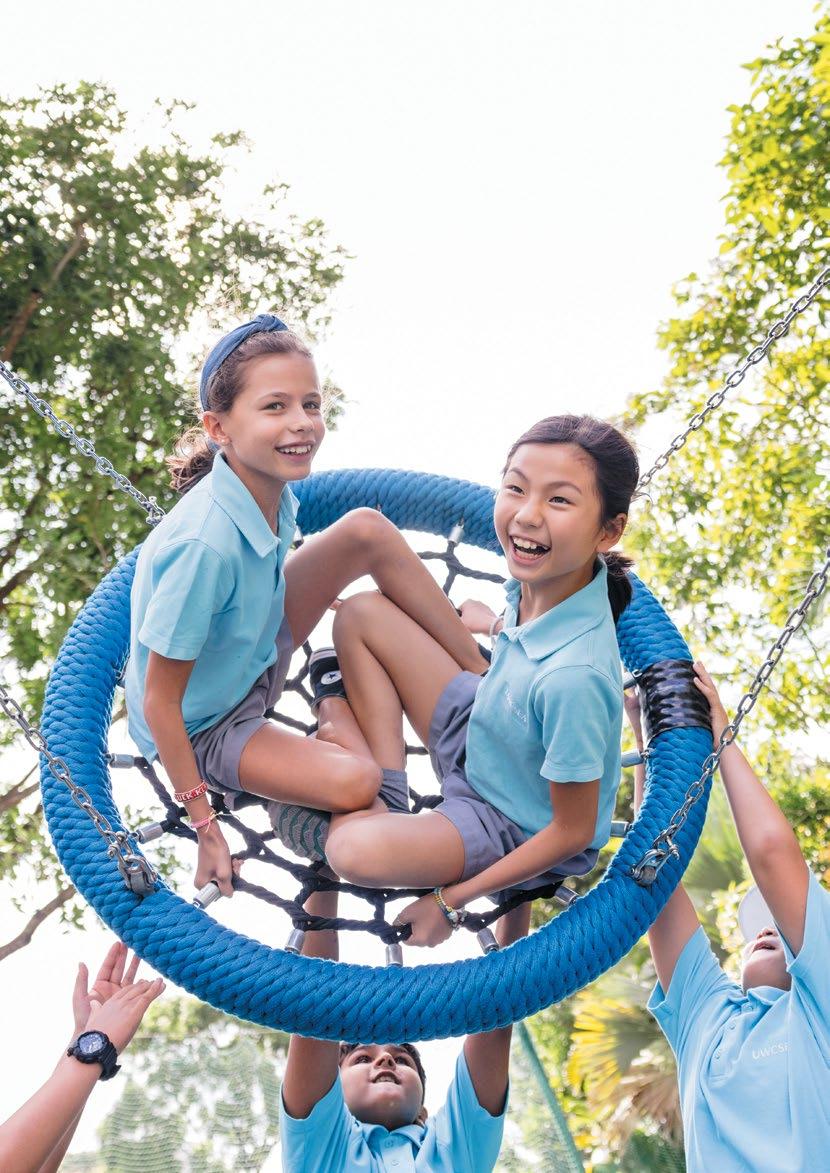

Adapted from Dunia article Creating space for dialogue – The Black Student Union invites us on their journey of belonging
At UWCSEA, the Black Students Union (BSU) isn’t just a student-led group; it’s a family. We formed it with a clear mission: to nurture a sense of belonging and shed light on the rich socio-cultural experiences of African Diaspora individuals within our community. Like other student unions, we’re here to amplify student voices beyond advocacy, especially in the areas of inclusivity, diversity, and equality. We’re all about creating a space that not only accepts, but celebrates our stories, traditions, and joys, with anyone willing to listen and learn regardless of their background.
Seyda Aidara ’24
Since its inception, I’ve seen how the union impacts those around me and connects to Black people. We’ve grown more outspoken in raising awareness. Many think BSU is exclusive to Black people, but it’s about having conversations and sharing stories with everyone from all cultures, races, and backgrounds. Students are now more comfortable sharing experiences and opinions on topics affecting us. It’s also about celebrating our culture and history.
During Black History Month, we screened Back to Natural, sparking heartfelt discussions about identity, heritage, and representation, including the cultural significance of hairstyles. Through workshops and open dialogue, we aim to create a space where every BSU member feels heard, valued, and empowered to advocate for themselves and others.
"As one of the non-Black members of BSU, my experience as both a member and a leader has been unique and yet deeply intertwined with my growth as a person. I joined the group entirely by accident, walking into the classroom serendipitously during a meeting time and deciding to stay. I felt immediately at home, and was awed by the level of trust, camaraderie, respect and appreciation in that one hour of discussions and activities. Within just a few meetings, I found myself proposing activities and initiatives, drawing from my own experiences and learnings. Throughout my time with BSU, I've developed a deep sense of empathy for minority groups and have learned invaluable leadership skills. I'll forever cherish the bonds formed within my BSU family."
RAY, Grade 10, Vice President of BSU, Dover Campus
CREATING A COMMUNITY: BSU AT EAST CAMPUS
Seiiy Lin, Grade 11
In September 2023, the East Campus BSU team was invited to a meeting that was led by Dover Campus High School teacher, Bernard Murrary, and Kim Cheah, Senior Designated DEIJ Lead, to discuss whether we wanted to extend the impact of the already existing BSU founded on Dover Campus. That initial meeting had us all sharing our personal relationships with our culture, from our food to our hair!
I was so excited about the possibilities for dialogue that I took it upon myself to see the BSU at East Campus grow beyond its first meeting, and that’s how I became the student leader of the union, with the guidance of two lovely teachers, Chantel Marson and MJ Johnson, who have been there every step of the way.
BSU at East Campus feels like family; a place where we explore self-expression and identity together. From celebrating Black hair in Art class to sharing food, dances, and traditions, there’s something for everyone. We hope BSU becomes a supportive space where students can find mentorship, friendship, and a sense of belonging.
We’ve grown into something more than activism; we’re building a community where real connections happen. Whether it’s mentoring younger students who feel lost or sharing stories through dance and games, we’re creating spaces to belong. We’ve even linked up with other BSUs, like at Singapore American School (SAS), to expand this journey together.
STRATEGIC FOCUS: update the SSP curriculum to articulate and reinforce our commitment to peacebuilding and enhance our immersive approach to educating for sustainability, service, and peace
Service is a cornerstone of the UWCSEA curriculum, empowering students to address social and environmental challenges at both local and global levels. Aligned to the UN Sustainable Development Goals, the Service, Sustainability, and Peace (SSP) curriculum, aims to develop a deep understanding of these issues, and encourages students to explore their own identities and relationships, and to build the knowledge, skills, and values needed to contribute to sustainable and peaceful futures. This work is rooted in UWCSEA’s shared responsibility to ensure our students have both the tools and practical opportunities to enact meaningful change.
The SSP curriculum integrates three key strands. Service Learning equips students to research, design, and implement actions as part of reciprocal partnerships, while learning the five stages of service and the importance of informed action. Sustainability introduces systems thinking to help students critically analyse complex issues and navigate solutions for sustainable futures. Peacebuilding fosters an understanding of peace, conflict, and power, enabling students to become compassionate peacebuilders within their communities and beyond.
By combining experiential learning with personal growth, the SSP curriculum cultivates compassion, responsibility, and intercultural competence. Students gain lifelong skills in reflection, reciprocity, and collaboration, preparing them to thrive in an interconnected and evolving world while promoting wellbeing for themselves and those they serve. Average weekly student hours of participation in service programme
All money raised at the College is independently audited annually. The commitment of our student body and services teams to our service partners and programmes was clearly visible in the collections made throughout the year.

These numbers reflect the service activities offered at lunchtime, after school and on the weekends for all students K–12. In addition to this, all Infant, Junior and Middle School students take part in service learning in the timetable throughout the school year.
2,394
Dover students participated in Service Programme
Average hours volunteered weekly 1.7hrs
Average number of service programmes per Dover student each year (lunchtime, after school, weekend)
4.4
1,397
East students participated in Service Programme
Average hours volunteered weekly 2.2hrs
4.6
Average number of service programmes per East student each year (lunchtime, after school, weekend)
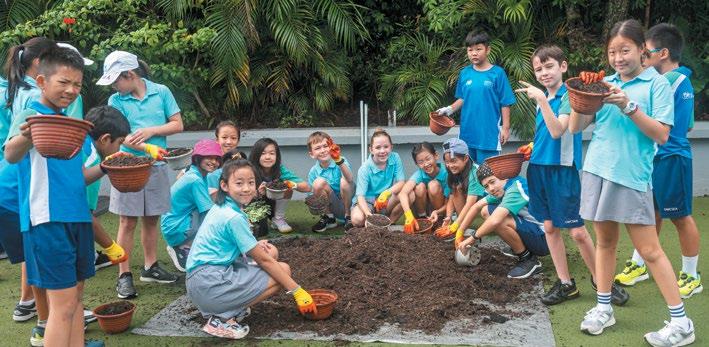
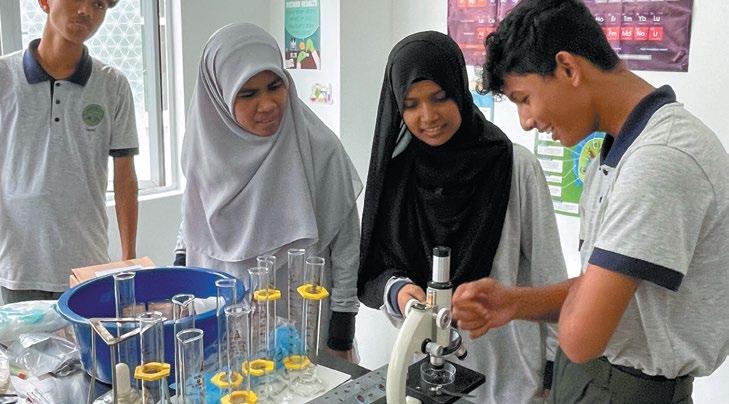
Adapted from Dunia article Hope through education: UWCSEA, PACE and CSB Partnership for Refugee Empowerment by Michelle Lawlor, PACE
PACE (Parents’ Action for Community and Education) is a UWCSEA parent-led volunteer organisation dedicated to instilling hope through education. For over two decades, PACE has partnered with organisations to provide scholarships and build schools for disadvantaged children. In 2022, PACE identified Cahaya Surya Bakti (CSB), an NGO supporting refugee education in Malaysia, as a new partner. CSB operates seven schools for stateless Rohingya children, who, displaced from Myanmar, face barriers to education, healthcare, and employment.
Committed to transforming young refugees' lives, PACE launched the Refugee Education Programme to fund teacher salaries, exam fees, and mentorship. As one of the only schools in Malaysia offering secondary education to refugees, CSB became a key partner in the United Nations High Commissioner for Refugees' (UNHCR) Complementary Education Pathways (CPath) initiative, which grants Rohingya students university scholarships and eventual citizenship based on educational achievements. Traditionally, Rohingya families withdraw children from school at puberty, prioritising marriage for girls and work for boys. However, in August 2022, four CSB graduates pursuing university degrees in the Philippines reshaped community perceptions on the value of education.
Recognising an opportunity to scale CSB’s impact, PACE provided financial, academic, and structural support. Fundraising initiatives, such as PACE Quiz Night, enabled CSB to recruit Science and Mathematics teachers and cover essential expenses. However, beyond financial aid, PACE identified a need for UWCSEA expertise. Angela Erickson and Rachel Ingram played a pivotal role in establishing a science laboratory, ensuring that CSB students received hands-on scientific education. Through weekly sessions, they continue to mentor CSB teachers, fostering a sustainable learning environment. Since its inception, the science programme has facilitated over 300 classes and 50 experiments.
Beyond academics, a dedicated team of PACE parents initiated a Service trip in September to develop an edible garden, providing nutritious food to CSB students. The garden, maintained by a student gardening club, supplements the school community's diet while instilling agricultural skills. Meanwhile, UWCSEA students have taken an active role in supporting CSB, forming the CSB Global Concerns (GC) and CSB Service groups on Dover Campus. Led by Kate Lewis, Veronica Jansen, and Claire Cosantino, these student groups raise funds and awareness through events such as UN Evening and Community Fair, contributing nearly $9,000 to CSB's educational initiatives.
Frankie Meehan introduced an online tuition service involving 40 Grade 11 students who tutor CSB students in English, Mathematics, Science, and Computer Science. Supported by teaching leads Akane Yoshida, Chloe Wong, Kate Lewis, and Lee Ownsworth, these students plan and adapt lessons to meet the unique needs of CSB learners. Sessions include personalised coaching, problem-solving, and interactive discussions. English lessons, led by UWCSEA students, feature culturally relevant topics to enhance vocabulary and fluency. The CSB students value the opportunity to engage in authentic conversations, often continuing lessons beyond their exams.
"I chose to join the CSB Service group because of its meaningful dedication to actively supporting refugee students for their upcoming IGCSE exams through online mentoring. I found this Service very impactful as I could help them succeed academically as well as provide them with opportunities for a successful future. While teaching them, I could also reflect on myself and come up with plans that would lead to effective lessons. Thus, CSB allows me to provide crucial assistance for students to overcome educational barriers and achieve their academic goals."
RACHEL, Grade 11, CSB’s UWCSEA tuition buddy
This partnership extends beyond academics—it fosters mutual learning and profound impact. While CSB students gain educational support, UWCSEA students develop empathy, leadership, and a deeper appreciation for the transformative power of education. Moving forward, UWCSEA Service groups will continue refining their approach, ensuring impactful collaborations with PACE and CSB. Together, they are shaping a future where education is a pathway to independence and opportunity for all.
"It is rare to see a Service so perfectly enact our UWC Mission to—make education a force to unite peoples, nations and cultures for peace. The weekly interactions are much more than academic tuition. The intense engagement of the CSB students and the patient, adaptive communication style of the UWCSEA students match well with our values of commitment, compassion, inclusion and integrity. Our Guiding Statements pledge to give our students multiple opportunities to develop the qualities and skills in our Profile. This Service certainly provides those opportunities."
FRANKIE MEEHAN, Head of Local Service, UWCSEA Dover
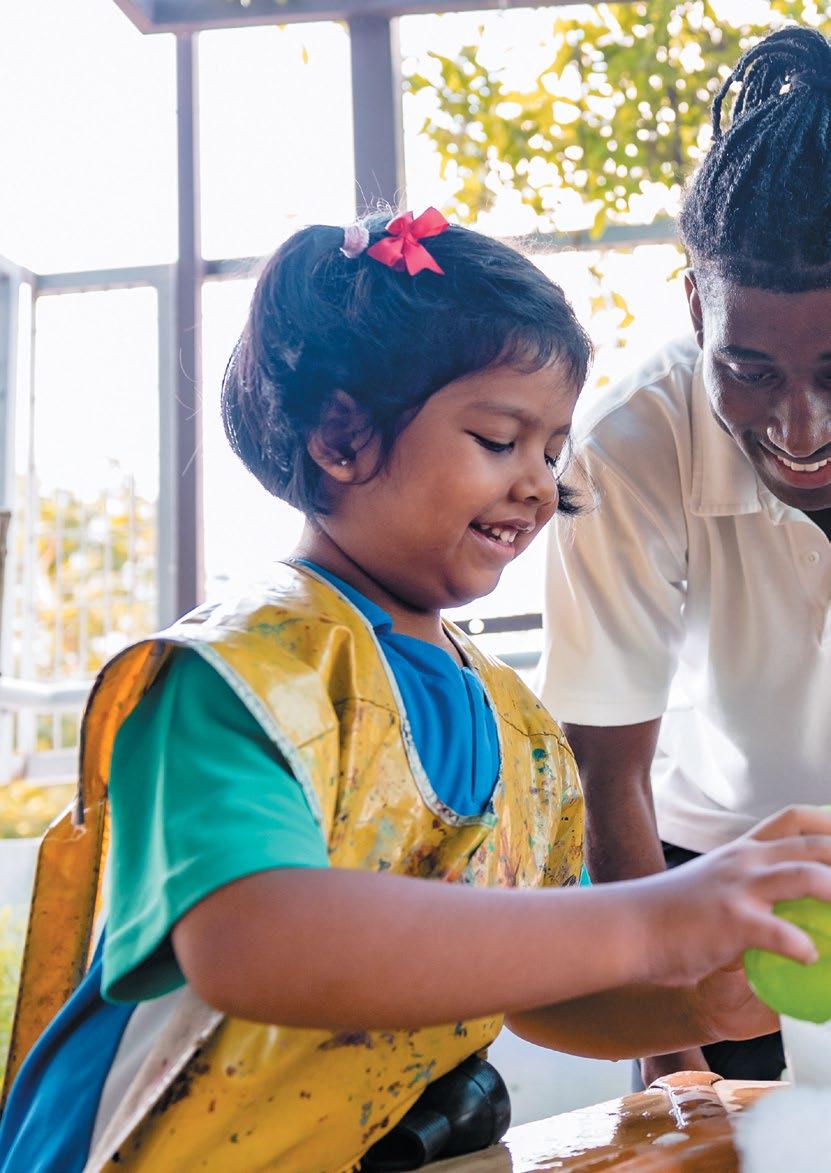
"We recognise belonging for all as an outcome of our individual and collective behaviours, and that just as our current community finds belonging, so too must our past community (alumni), and future community (potential families and staff members)."
NICK ALCHIN, HEAD OF COLLEGE, UWCSEA
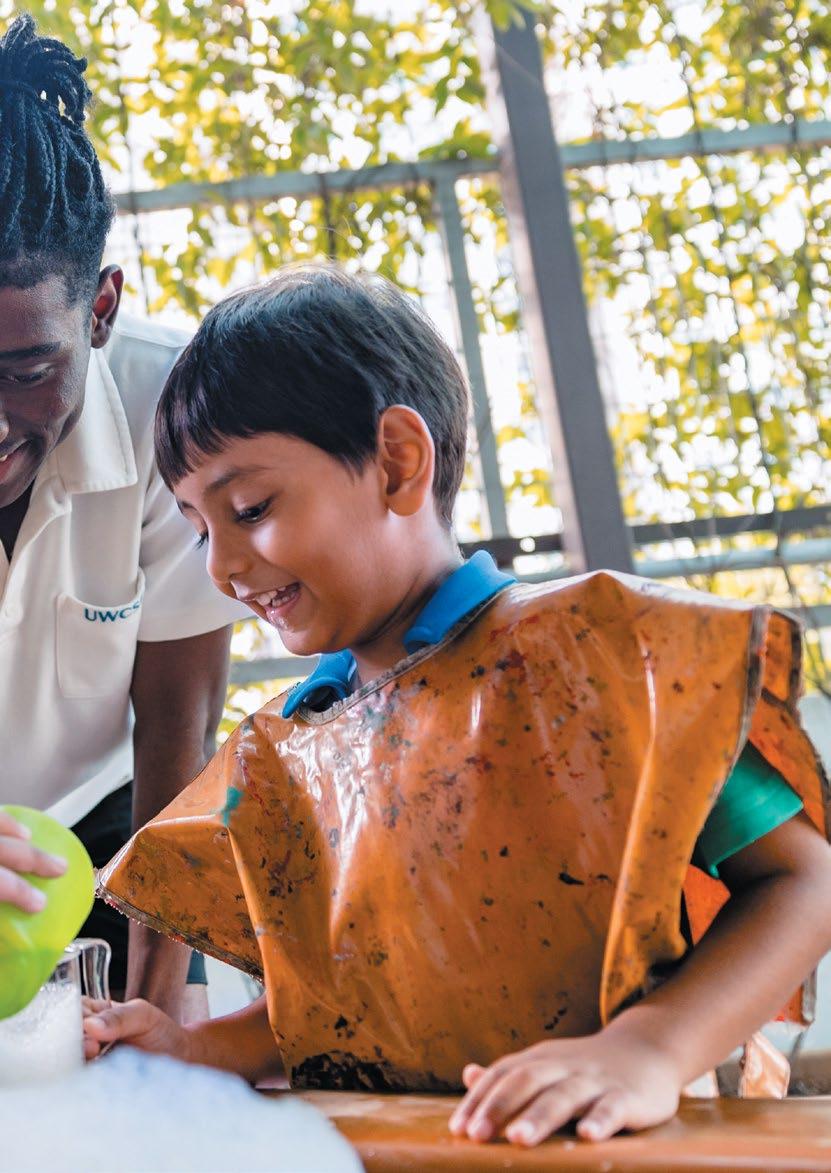
The UWCSEA community is a vibrant, truly international group of students, boarders, scholars, staff, alumni and parents who are united in a common purpose. This section of the report provides some statistics and information about our community.
2023 marked the launch of the new UWCSEA Strategy 2023–2030 and beyond. Our strategy provides a dynamic framework that is adaptable and responsive to future challenges and opportunities. Rather than a fixed structure, it serves as a guiding course— one that evolves to meet the future needs of our students, staff, and community.
A successful strategy will ensure that UWCSEA continues to deliver a world-class education, led by exceptional teachers and teams, within a diverse and inclusive College community where every individual feels a sense of belonging. Rooted in our mission, this approach will enable us to explore new possibilities that contribute to a more peaceful and sustainable future.
Four Strategic Commitments will shape our priorities and drive our development across the College:
• Exceptional People and Teams – Attracting, developing, and retaining outstanding educators and staff.
• Immersive Learning – Providing transformative educational experiences that engage students deeply in their learning.
• A Sense of Belonging – Fostering an inclusive community where everyone feels valued and supported.
• Curiosity and Exploration – Encouraging innovation, inquiry, and a mindset of continuous learning.
These commitments will inform our annual strategic priorities and ensure a cohesive, whole-College approach to development. Our core focus remains delivering a world-class education while upholding our mission—to make education a force to unite people, nations, and cultures for peace and a sustainable future.
In consonance with our strategic commitment to foster an inclusive community where everyone feels valued and supported, the 2023/2024 school year saw a host of community led events including our flagship Community Fair (Dover) and Family Festival (East). These annual events run by the Parent’s Associations are a coming together of all in our community in a day of celebration, fun and fundraising.
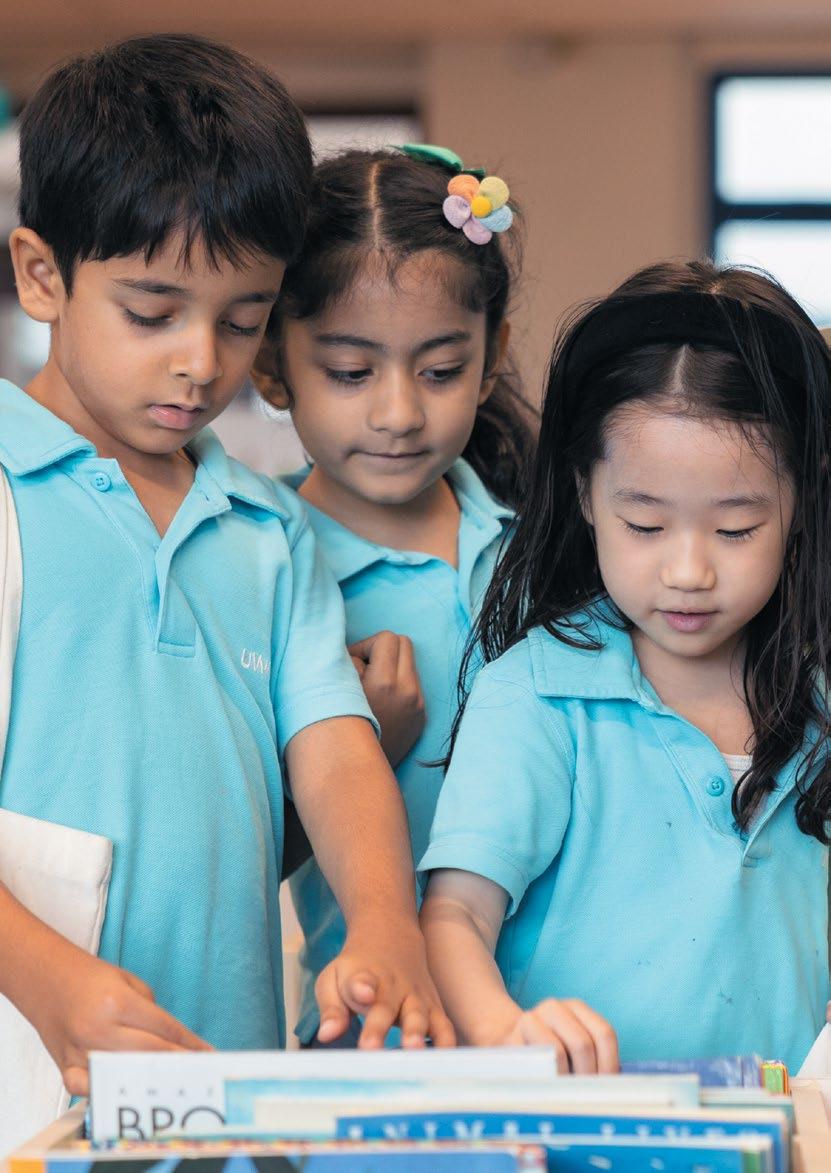
In keeping with our mission and values, our diverse student community brings a variety of backgrounds and experiences to our campuses. Our students’ learning, their interactions, and growth through the five elements of our Learning Programme is all the more exciting and enriching because they interact with peers who bring a diversity of cultures, life experiences, and perspectives to the campus and classroom.
6.8%
Dover Campus leavers*
Average length of stay of leavers
3.5 years
7.0% East Campus leavers*
3.6 years East Campus Students: 2,807; Families: 2,055
Average length of stay of leavers
Average length of stay of leavers 3.6 years College Students: 5,924; Families: 4,312
6.9% College leavers*
United
86
Dover Campus
Hong
3.1%
Others (76 nationalities) 25.20%
113 Nationalities across College
84
East Campus
26.4%
6.6%
4.0%
3.3%
15.7% Others (74 nationalities)
113
Countries represented by UWCSEA students
Antigua and Barbuda; Argentina; Australia; Austria; Bahamas; Bangladesh; Belarus; Belgium; Benin; Bhutan; Bolivia, Plurinational State of; Brazil; Bulgaria; Burkina Faso; Cambodia; Canada; Chile; China; Colombia; Congo, the Democratic Republic of the; Costa Rica; Cote d'Ivoire Côte d'Ivoire; Croatia; Cyprus; Czech Republic; Denmark; Dominican Republic; Ecuador; El Salvador; Estonia; Ethiopia; Finland; France; Georgia; Germany; Greece; Guatemala; Haiti; Honduras; Hong Kong; Hungary; India; Indonesia; Ireland; Israel; Italy; Jamaica; Japan; Kazakhstan; Kenya; Korea, Republic of; Lao People's Democratic Republic; Lebanon; Lithuania; Macao; Macedonia, the former Yugoslav Republic of; Madagascar; Malawi; Malaysia; Maldives; Malta; Marshall Islands; Mauritius; Mexico; Moldova, Republic of; Monaco; Mongolia; Morocco; Myanmar; Namibia; Nepal; Netherlands; New Zealand; Norway; Pakistan; Panama; Paraguay; Peru; Philippines; Poland; Portugal; Romania; Russian Federation; Rwanda; Saint Kitts and Nevis; Senegal; Serbia; Sierra Leone; Singapore; Slovakia; Slovenia; South Africa; South Sudan; Spain; Sri Lanka; Sweden; Switzerland; Taiwan; Tajikistan; Tanzania, United Republic of; Thailand; Timor-Leste; Togo; Turkey; Uganda; Ukraine; United Kingdom; United States; Uruguay; Vanuatu; Viet Nam; Zambia; Zimbabwe
Dover Campus
East Campus
The founder of the UWC movement, Kurt Hahn, believed the experience of living and learning with other young people from around the world should be at the heart of UWC’s philosophy. The College community benefits tremendously from the presence of scholarship students who make up around one third of our boarding community. The diversity of background, culture, socioeconomic status and life experience of our scholars enriches the everyday life of our whole community, and this is particularly true of the UWCSEA boarding experience.
In the same way as all other UWCSEA High School students, scholarship recipients are selected on the basis of their potential to have a positive impact on their local and global community, and must have the academic ability to meet the demands of the UWCSEA Learning Programme. Some scholars are selected by the College directly with consultation through the UWC National Committee, but most are selected through their country's UWC National Committee.
In 2023/2024, the UWCSEA community welcomed 101 scholars from 65 countries to our boarding community in Singapore, and supported another 7 to attend our sister UWC schools and colleges around the world.
Dover Campus has Kurt Hahn, Maya Angelou and Nelson Mandela residential boarding houses, and Tampines House is on East Campus.
2023/2024 figures have been updated as of
Countries represented by scholars Argentina; Bahamas; Belarus; Benin; Bolivia; Brazil; Belgium; Bulgaria; Burkina Faso; Cambodia; Chile; Colombia; Costa Rica; Cote D'Ivoire; Democratic Republic of Congo; Denmark; Dominican Republic; Ecuador; El Salvador; Estonia; Ethiopia; France; Georgia; Guatemala; Haiti; Honduras; Hungary; Indonesia; Kenya; Laos; Macedonia; Madagascar; Malawi; Malaysia; Marshall Islands; Mexico; Moldova; Morocco; Myanmar; Namibia; New Zealand; Panama; Paraguay; Peru; Philippines; Poland; Rwanda; Serbia; Senegal; Sierra Leone; Slovenia; South Africa; South Sudan; Spain; Tajikistan; Tanzania; Thailand; Timor Leste; Togo; Turkey; Uganda; Ukraine; Uruguay; Zambia; Zimbabwe
Scholars receiving a UWC education
scholars at UWCSEA 2 Waterford Kamhlaba UWC UWCSEA Staff Fund Scholarships (Grade 11 and Grade 12)
2 UWC Mahindra UWCSEA Staff Fund Scholarships (Grade 11 and Grade 12)
UWC Thailand (Grade 11 and Grade 12)
UWC Maastricht Scholarship (Grade 11)
UWCSEA’s vision is to be a leader in international education, with a worldwide reputation for providing a challenging, holistic, values-based education. The recruitment and retention of excellent staff who are aligned to the mission and values of the UWC Movement remains central to our vision.
The College provides specialist teaching staff for students of all ages, recruiting fully qualified teachers who have experience teaching in international environments. Many have postgraduate qualifications, ensuring that we are able to offer the highestquality experience to our students. Our team of full time Outdoor Education staff is unique amongst schools in Singapore.
In terms of Educational Support staff, this includes provision of teacher assistants in the Primary School; technical, PE, and laboratory assistants in science and other specialist classrooms in the Middle and High Schools, as well as professionally experienced support staff and coaches in the Physical Education, Drama, Design Technology and Music Departments.
The extensive business operations of the College are supported by similarly qualified and experienced staff. Our administrative and support staff provide our teaching staff with support that enables them to focus their energy on providing an outstanding educational experience for our students.
The College is an Equal Opportunity Employer, and our staff are an important part of our inclusive community, and which celebrates diversity. In much the same way as we consider diversity factors in applications from qualified students for the fresh perspectives they will bring to their cohort, we welcome staff who contribute to our community in the same way. Many of our administrative, educational support and operations staff are Singaporean, and provide unique connections with the community in which we live and learn.
At the heart of the College’s alumni engagement programme is the opportunity for the UWCSEA community to remain connected—with each other, with the UWC movement and with the ideals of the mission—by encouraging life-long connections and mutually beneficial relationships. We have a network of more than 30,000 UWCSEA alumni across the globe.
UWCSEA alumni are invited to get involved and give back in many ways. The Alumni Relations team continued to offer opportunities for our network of alumni around the world to stay connected with the College through events and communication services including e-newsletters, the website and the One°North magazine in 2023/2024.
The alumni team held five reunions throughout the 2023/2024 year—Milestone Reunion and Holiday Alumni Gathering—in Singapore and across the world, including in Amsterdam, London and Mumbai.
Many alumni living in Singapore and those in Singapore for business or pleasure, also took the opportunity for in -person visits and came on to our campuses to visit old teachers and see the learning and social spaces that shaped their experiences here at UWCSEA.
30,830 Alumni
141
18,305
59.4% Contactable alumni of total alumni
Countries in which alumni are located Albania; Argentina; Australia; Austria; Bahamas; Bahrain; Bangladesh; Barbados; Belarus; Belgium; Belize; Benin; Bermuda; Bhutan; Bolivia; Botswana; Brazil; Brunei Darussalam; Bulgaria; Burkina Faso; Cambodia; Cameroon; Canada; Cayman Islands; Chile; China; Colombia; Costa Rica; Cote dIvoire; Croatia; Curacao; Cyprus; Czech Republic; Denmark; Dominican Republic; Ecuador; Egypt; El Salvador; Estonia; Ethiopia; Faroe Islands; Fiji; Finland; France; Georgia; Germany; Ghana; Greece; Guatemala; Guyana; Haiti; Honduras; Hong Kong; Hungary; Iceland; India; Indonesia; Ireland; Israel; Italy; Jamaica; Japan; Jersey; Jordan; Kazakhstan; Kenya; Kuwait; Laos; Latvia; Lebanon; Lithuania; Luxembourg; Macao; Macedonia; Madagascar; Malawi; Malaysia; Maldives; Malta; Marshall Islands; Mauritius; Mexico; Moldova; Mongolia; Montenegro; Morocco; Myanmar; Namibia; Nepal; Netherlands; New Zealand; Nigeria; Norway; Oman; Pakistan; Panama; Papua New Guinea; Paraguay; Peru; Philippines; Poland; Portugal; Qatar; Romania; Russian Federation; Rwanda; Samoa; Saudi Arabia; Senegal; Serbia; Sierra Leone; Singapore; Slovakia; Slovenia; South Africa; South Korea; South Sudan; Spain; Sri Lanka; Swaziland; Sweden; Switzerland; Taiwan; Tanzania; Thailand; TimorLeste; Togo; Trinidad and Tobago; Turkey; Turks and Caicos Islands; Uganda; Ukraine; United Arab Emirates; United Kingdom; United States; Uruguay; Vanuatu; Venezuela; Vietnam; Zambia; Zimbabwe
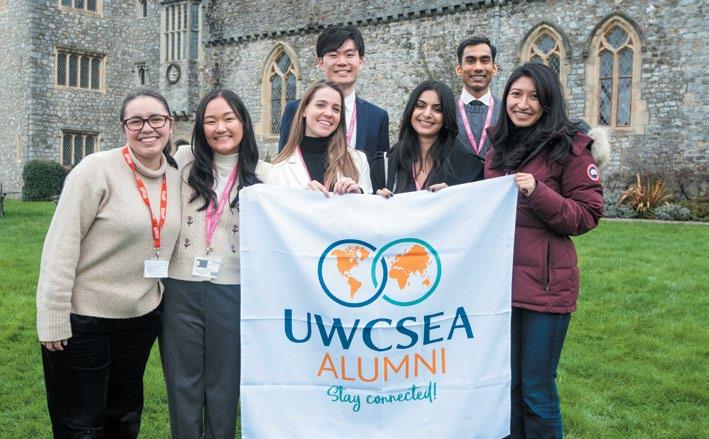
For the last two years, the Alumni Relations Team strengthened its support for the UWCSEA Career Programme by harnessing our network of current parents, alumni and partners to develop our students and young alumni through knowledge exchange and skill development. The programme is built on four key pillars: Internships, Mentoring, Major Events, and Company visits and gives students the chance to explore career options and gain real-world experience.
This year, driven by the passionate vision and leadership of parent advocate Katherine Crane, we piloted the UWCSEA Mentorship Programme—where six scholars earned paid summer internships with partners including OTPP (Ontario Teachers’ Pension Plan), KKR, Temasek and 1880.
The students gained valuable exposure and knowledge in complex fields from Infrastructure to Finance. They learned about working in an office environment, made new friends, and gained mentors who hopefully will be part of their journeys for many years to come. Most importantly, they built their social capital and a greater understanding of the value of networks and connections in driving toward their future careers and success.
Thanks to the incredible support of alumni, parents, and partners, the programme has grown in exciting ways:
• Internships: Over 150 internships in more than 50 companies in a range of different sectors including Finance, Health Science, Sustainability, Start-ups, Tech, and the Arts
• Mentoring: The Mentorship Initiative now has 1,500 professionals offering year-round guidance as students explore career pathways
• Major events: Annual Careers Fair organised by the PA connects students with industry experts including many alumni who come back to our campuses to share their industry insights
• Company visits: Students had the chance to visit leading companies like Google, Amazon Web Services, ByteDance (TikTok), VISA, and Razer, gaining insights into industry trends and workplaces
• Networking: Over 5,000 alumni are now registered on our CONNECT platform
These achievements demonstrate the strength of our UWCSEA network of exceptional people. By tapping into the expertise and generosity of alumni, parents, and partners, we are creating a cycle of growth, empowering our students to explore their aspirations and equipping them to become the next generation of exceptional individuals. As we expand the Careers Programme and alumni initiatives, we remain committed to the College’s strategic goals, ensuring every opportunity contributes meaningfully to our mission of making education a force for peace and sustainability.
Our active and engaged parent community provided the College with an exceptional level of support through the activities of parent volunteers. This continued in the 2023/2024 year, and we are grateful to our parent community for their continued support and engagement.
2023/2024 represented another wonderful year of connection with our annual community events such as the Community Fair and Family Festival along with several other community workshops, events, concerts, showcases, performances, festivals, parent/ teacher engagement opportunities and many many more!
On both campuses our hard-working Parents’ Associations (PA) were managed by an elected committee of enthusiastic volunteers, who offered their time to serve the school community. By helping parents connect with one another and to other important groups, our parent community and the PA contributed significantly to one of the College’s most important strategic goals: to build a united, diverse and strong community.
Our dedicated PA teams organise an exciting and diverse array of events and activities which are designed to connect the parent community with the life of the school and with each other, from large, campus-wide events, to social coffees and lunches, to regular and one-off activities or outings.

The Parents’ Associations (PAs) at East and Dover campuses have been instrumental in fostering a vibrant, united, and inclusive community. Through their dedication and creativity, the PAs organised events and initiatives that connected parents, students, and staff, while enriching the life of the College. Guided by elected committees of committed volunteers, the PAs advanced one of the College’s strategic goals: building a strong and resilient community.
In 2023/2024 our dedicated PA teams organised a calendar full of exciting and diverse events and activities with the purpose of connecting our parent community with each other and with the College. with the life of the school and with each other. Opportunities for connection, celebration and learning ranged from large, campus-wide events to more intimate social gatherings and one-off workshops.Our PAs approached these opportunities with their usual commitment and passion. Below are some of the highlights of the College PA activities from the 2023/2024 academic year.
The PAs were at the forefront of welcoming new families to UWCSEA and during Orientation Week, PA volunteers on both our campuses supported parents through information sessions and coffee mornings. Dover’s New Parent and Buddy Coffee Morning in August 2023, a hallmark event, brought together over 200 new and returning parents. The Parent Buddy Programme matched over 200 buddy parents with more than 300 new families, helping them to transition smoothly into the College.
The second annual Welcome (Back) BBQ on Dover and the Welcome Back Social at East campus were highlights of September 2023, offering parents, students, and staff the chance to connect over food, music, and friendship. Movie Nights, such as Dover’s CinePic and East’s festive screening of The Polar Express in December 2023, added to the sense of togetherness, with fun activities like bouncy castles, food stalls, and themed entertainment. The annual Community Fair on Dover, and Family Festival on East are flagship events and were again standouts in the College calendar, showcasing shared values of service and collaboration. Additionally, cultural celebrations such as Lunar New Year, Diwali/Deepavali and Hari Raya were organised by PA Nationality groups and showcased our community’s diversity and inclusivity.
The PA played an essential role in supporting learning and key transitions for students and parents. The Dover PA contributed to major school events like UN Night and the Primary School Food Festival while also organising the Careers Fair, the first in-person edition since COVID-19, for students from both campuses. This will be held on East Campus in 24/25. Transition events, including workshops like “Transition to Middle School, High School, and Grade 11,” provided parents with valuable guidance to navigate key academic stages.
The PAs also led initiatives that promoted wellness, creativity, and networking. Workshops and information sessions like “Middle School Matters” and “Menopause,” were hugely popular on Dover Campus, with each drawing over 100 participants. A new initiative, AquaFest, brought Primary School families together to celebrate the PA’s purchase of a water obstacle course, providing a fun and engaging aquatic experience for all. Meanwhile, campaigns like the No Idling initiative demonstrated the PAs’ commitment to fostering sustainable behaviours within the school community.
On East campus the PA organised several specialised networking events, including the Healthcare, Biosciences, and Pharma Networking Event, and a networking event for Finance, Technology, and Telecommunications professionals. These gatherings provided platforms for meaningful connections, knowledge sharing, and career-focused discussions within the school community. PA East also organised a range of parent-led workshops including introspective writing and movement sessions, along with ongoing parent-led activities such as yoga, cooking, and badminton.
On Dover Campus Classlist continues to be a valuable parent-to-parent communication tool and two new groups, “Family Tech Talk” and “Smartphone-Free Childhoods,” gained significant traction with over 300 combined members actively engaging in discussions in the 2023/2024 school year. .
Through their tireless dedication and innovation, the Parents’ Associations at East and Dover campuses have created a lasting impact. Their efforts continue to enrich the lives of students, families, and staff, laying a strong foundation for a connected, inclusive, and thriving UWCSEA community.
Both Parents’ Association are registered as a society in Singapore under the Societies Act. They operate individually and have independent constitutions and Managing Committee structures which are governed by a constitution and by-laws, with independently audited financial statements available to members each year.
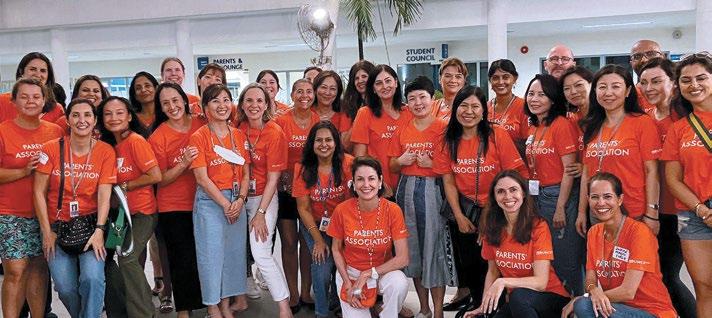
A volunteer, parent-led organisation that falls under the Service umbrella of the College, PACE serves the UWCSEA community across both campuses. With a common mission and through shared values, PACE strives to support the UWCSEA Strategy to create a united community by welcoming all parents, staff and alumni. Their annual schedule of activities provides both a social network and many opportunities to contribute to the Singapore community and beyond in ways that align with our UWCSEA values.
Established 23 years ago to provide scholarships for children in the slums of Cebu, Philippines, PACE has always focused much of its efforts towards improving the lives of underprivileged children through access to education. With the support of many volunteers, PACE has created libraries in Myanmar, built schools in Cambodia, donated over 200,000 school lunches to children in need and helped over 360 children graduate from High School and College in the Philippines.
This parent-led volunteer organisation, which falls under the College's Service umbrella, is dedicated to bringing the UWC mission to life and giving all UWCSEA parents a chance to do the same. With a focus on building unity within the community and making education a force for good, PACE creates opportunities for like-minded people from both Dover and East campuses to connect and engage in social events and community service projects, in Singapore and nearby countries, that bring about positive and lasting change.
Established 24 years ago to provide scholarships to children living in poverty, PACE has always focused much of its efforts on improving the lives of underprivileged children through access to education. With the support of many volunteers and funds from the UWCSEA community, PACE has created a library in both Myanmar and the Philippines, built schools in Cambodia, donated more than 200,000 school lunches and helped nearly 400 children graduate from High School and College in the Philippines.
In November 2022 PACE embarked on a partnership with Cahaya Surya Bakti, an NGO supporting the refugee population in Malaysia, to provide secondary education to refugee children, primarily Rohingya youth. Created, funded and driven by the parent community, the Refugee Education program has evolved into a PACE, CSB, UWCSEA strategic alliance that has galvanised hundreds of students, teachers, staff and parents into action behind a cause that perfectly aligns with the UWC Mission. It both addresses the challenges for improving refugee education and enhances UWCSEA's learning experience by providing students with hands-on relevant and transformative community service opportunities such as tutoring IGCSE students, practicing English and planning and painting a beautiful mural together with CSB students. In 2024 two Sports Science teachers and nine students from the EAST Campus immersed themselves in a six-month initiative to plan, create and deliver a Fitness Zone at CSB complete with gym equipment and online health and wellness resources.
At home PACE offers a mix of social activities to foster community spirit and connect with our host country such as guided walks through Singapore's heritage districts. PACE local service events like ocean clean-ups, preparing meals for migrant workers and, and escorting children from low-income families to the supermarket to buy food provide valuable opportunities for UWCSEA parents and children to volunteer together.
PACE is 100% funded by donations from the parent community raised from an annual gala fundraising event and the everpopular Book Fairs at the Dover Community Fair and East Family Festival held in the first quarter of each year.

2023/2024 HIGHLIGHTS
Community Service and Social Activities
16 events
276 participants
886 volunteer hours
Fundraising
$158,000+ raised (between Quiz Nights and Book Fairs)
Refugee Education
30 IGCSE students supported
1 teacher funded for each: Mathematics, Science, and Computer Studies
325 parents attended PACE Quiz Nights
50 exams funded
4 CSB Graduates supported through transition to university
CSB Fitness Zone created by Grade 10 and Grade 11 students & Sports Science teachers
CSB Sports Carnival funded and marshalled
The wide range of PACE initiatives bring together UWCSEA parents, alumni, and families to make a real difference in the lives of others and in our environment. Just as important, they give us all a chance to live the UWC mission alongside our children.
The UWCSEA Parent Ambassadors are a group of passionate and committed parents who work with and represent the UWCSEA Foundation within the UWCSEA community. The Ambassadors champion and support activities and events of the Foundation, increasing awareness of the impact of giving to the College and encouraging members of the community to get involved in supporting philanthropic initiatives of the College.
In 2023/2024 school year, we were delighted to partner with our dedicated Parent Ambassadors who make such a valuable contribution to our community engagement and education efforts on the impact of philanthropy at the College.
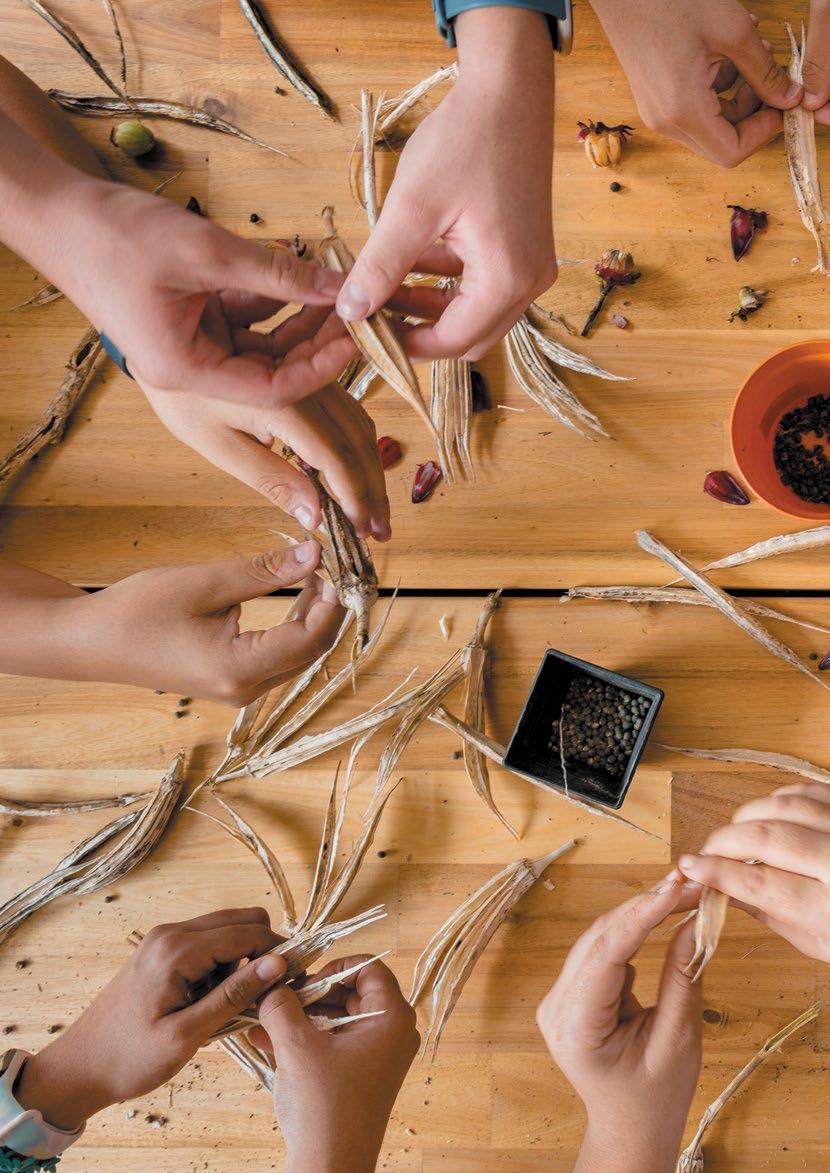
"To our students, staff, and parents—your dedication, support, and engagement shape our school's success. Your hard work, commitment, and generosity of spirit create a thriving community. Thank you for the time, energy, and care you contribute every day. Our school would not be the same without you."
CATHY JONES, HEAD OF UWCSEA EAST

The College has significant business operations. This section of the report provides an overview of staff and student recruitment through Human Resources and Admissions, as well as Finance and the UWCSEA Foundation for the 2023/2024 school year.
UWCSEA’s ambition is to be a leader in international education, with a worldwide reputation for providing a challenging, holistic, values-based education. The recruitment and retention of excellent teachers, and administration and operational teams who can support the mission of the College remains central to this vision.
In the 2023/2024 year the HR team has made significant progress in talent acquisition, professional learning, wellbeing, and governance, to enhance both the employee experience and operational efficiency. A key achievement was the reduction in time to hire, streamlining recruitment processes to attract top talent more effectively. A new recruitment brochure and careers page were launched to strengthen employer branding, while talent mapping initiatives helped build a more diverse pipeline of education leaders.
In professional Learning and Development, the introduction of a new Learning Management System (LMS) expanded training opportunities across the organisation. Compliance training was enhanced with the completion of eLearning design, and a strategic focus was placed on benchmarking and developing a sense of belonging within the workforce. Key changes were also made to the terms and conditions for local contract teachers, alongside benchmarking for administrative and superintendent staff to ensure alignment with best practices.
Employee wellbeing remained a priority, with the first College-wide Wellbeing Survey conducted in November 2023, providing valuable insights into staff engagement and satisfaction. In performance management, the process for administrative and superintendent staff was simplified to ensure it is fit for purpose and better supports professional growth.
On the industrial relations front, the team successfully negotiated a new Collective Agreement, reinforcing positive employeremployee relationships. Governance processes were also refined, with streamlined policy approval requirements to align with Charity Commission guidelines, ensuring compliance and greater efficiency.
A significant milestone was achieved with the approval of a new HR IT system, with core HR functionalities set to go live by August 2024. Additionally, employment contracts were substantially simplified, reducing administrative complexity. Administrative contracts were consolidated from 24 versions to a single template with 12 appendices, while Academic contracts were streamlined from 20 versions to a single template with 8 appendices.
These achievements highlight HR’s ongoing commitment to efficiency, employee wellbeing, and strategic workforce planning, ensuring the organisation continues to attract, develop, and retain top talent while fostering a positive and inclusive workplace in keeping with our strategic commitments.
1,212
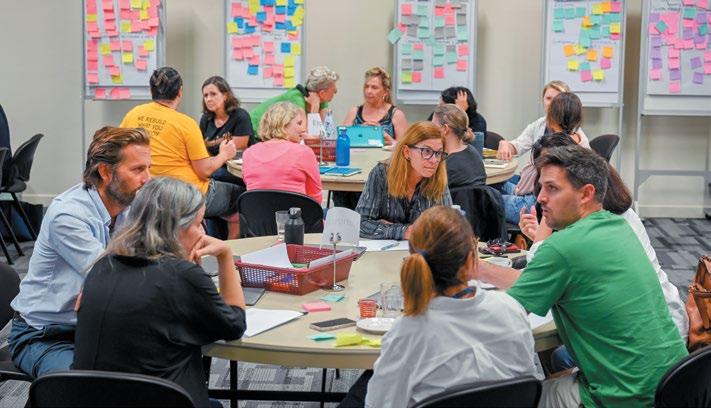
158
2,485
228
5,469 Posts advertised
2,984
43.0
Throughout the 2023/2024 year, the Professional Learning and Development team organised various training opportunities, including professional learning days for teachers and skill-based training options for educational support, administrative, and operations staff.
1,255
Individual training applications processed
709 Unique participants
20 In-house courses run by UWCSEA staff
19 UWCSEA staff who led training for colleagues
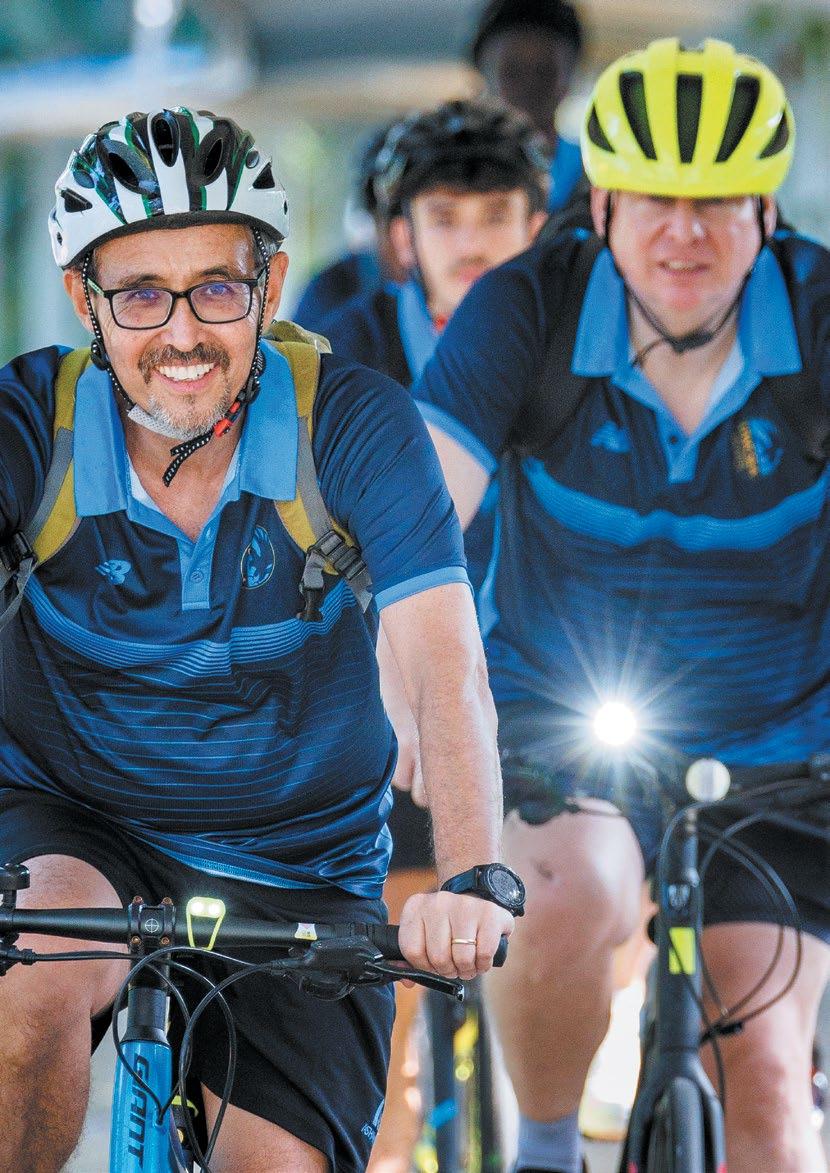
The UWCSEA Foundation is the fundraising arm of the College, and is a key strategic function within the Department of Engagement and External Relations. This section of the report highlights the activities of the UWCSEA Foundation in fundraising and stewardship in the 2023/2024 school year.
Since its inception in 2008, the collective generosity of donors, through gifts large and small, has helped the Foundation to raise over S$40 million.
The total gifts reported reflect the cash donations received by the College in the 2023/2024 financial year, including new donations and cash received from pledges made in past financial years. Please refer to the 2023/2024 Impact of Giving Report for details on the total funds and pledges raised, which reflects all funds committed during the financial year. The total gifts amount does not include interest and dividends earned through investment of the endowment fund.
100% of the gifts supported the continued development of the College and the UWC movement through five key programmes: scholarships, sustainable development, teaching and learning, student support, and endowment. Gifts received in a given school (financial) year are generally allocated to support scholarships and other mission-aligned priorities in the subsequent school year.
S$2,656
The Engagement Foundation Committee oversees the Foundation endowment, allocating the funds over asset classes with longterm investment horizons.
Endowment funds are split between restricted and unrestricted, with restricted endowment money reserved for specific purposes, as directed by donors and/or the College.
S$6,544
S$12,697
1971 Society
Recognises cumulative lifetime gifts at the $10,000 or above in five giving levels.
S$6,153
Globe Giving Club
Recognises those who make gifts of S$1,000 or more during the current financial year.
Kurt Hahn Society
Recognises those who plan to leave a bequest or planned gift to the College.
Members
Members
This section of the report outlines financial information for the 2023/2024 year for the College.
UWCSEA is incorporated in the Republic of Singapore. As a not-for-profit organisation, the College uses any financial surplus from the campuses for the sole purpose of betterment of the College. Every dollar of school fees supports the provision of UWCSEA’s holistic Learning Programme, including provision of educational resources, staff and student recruitment, staff development and training, and development and maintenance of facilities in line with our mission for sustainability.
We are pleased to report that our audited financial results for the year 2023/2024, ending in July 2024, compare favourably to the budget approved by the Board of Governors.
Revenue grew 7% and surpassed the budget mainly from higher fixed deposit interest earned and marked-to-market valuation gain from College investments. Operating expenses remained close to budget expectations. Overall, the net surplus amounted to S$30.2 million or 10% of total revenue which is allocated to the College cash reserves, with the long-term aim of ensuring the financial sustainability of the College.
Enrolment-related income comprises 83.8% of total revenue. Donations, investment income, and other income contributed to 11.9%. Activities and trips income was 4.3%.
College expenditure mainly comprises staff costs, campus operation expenditures, learning resources, activities and trip expenditures, technological expenditures, donations, and administrative expenditures.
Funding for scholarships is generated through school fees, the UWCSEA Nominee Programme, corporations, foundations, National Committees, and parent, alumni, and staff donations. A total of S$9.7 million was allocated to scholarships during the 2023/2024 school year, enabling the UWCSEA community to welcome 101 scholars from 65 different countries to our boarding community in Singapore.
Funding for UWCSEA-enroled scholars
Source of funding
S$9.7 million Total
In addition, support from the UWCSEA community enabled another 7 scholars to attend other UWCs around the world:
• 2 UWC Thailand (Grade 11 and Grade 12)
• 1 UWC Maastricht (Grade 11)
• 2 UWC Mahindra UWCSEA Staff Fund Scholarship (Grade 11 and Grade 12)
• 2 Waterford Kamhlaba UWC UWCSEA Staff Fund Scholarships (Grade 11 and Grade 12)
The Admissions Department oversees all aspects of student admissions to the College, ensuring compliance with Singapore government regulations for both initial admissions and continued enrolment of students in foreign-system schools in Singapore. In the 2023/2024 academic year, the Admissions Department processed 2,990 applications for the 2024/2025 intake, which includes both August and January entries. This figure represented a return to the average application levels observed in the years before COVID-19, and was 8% lower than the previous year.
The College hosted a variety of open day options for prospective families, including webinars and in-person campus events. Registrations were robust, with a 49.7% year-on-year increase in unique webinar attendees and a 49% increase for in-person events. Notably, 25.6% of all open day attendees were new to UWCSEA, marking their first engagement with the College.
To improve application eligibility, several initiatives were launched on the Admissions webpages. Google Translate was added to enhance accessibility for non-English-speaking families, and three non-negotiable criteria were introduced as an initial step in the application process to ensure applicants understood and accepted Singapore’s legal requirements.
Significant efforts were made to enhance the parent enquiry process and build a comprehensive contact database. A structured enquiry workflow was implemented, providing tailored information based on each parent’s query. Since its launch in September 2023, 2,130 enquiry forms have been submitted, and 7,819 personalised emails were sent (up to 30, June 2024), creating a more customised experience for prospective families.
Lastly, substantial work was dedicated to preparing for the 2024/2025 application season. Work began on a rebuild of the Admissions Parent Portal, to integrate it with the College’s mailing systems so as to streamline communication and provide Admissions Officers with a comprehensive view of prospective parents and their engagement with the College. This integration also enables the Communications team to create workflows for key onboarding milestones and messages. The final phase of this work is expected to be completed by June 2025.
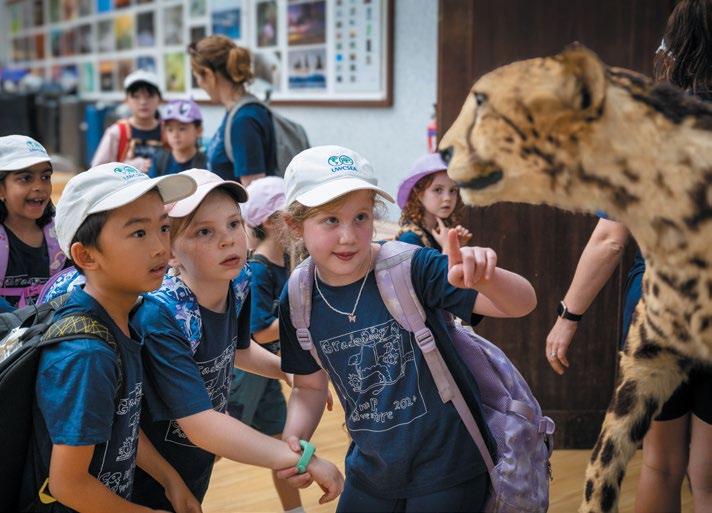
Dover Campus East Campus
1,047 ‘Single campus’ applications
1,131 ‘Dual campus’ applications
489 Places available for entry
Average applications for each available place
610 ‘Single campus’ applications
1,131 ‘Dual campus’ applications
456 Places available for entry
Average applications for each available place
applications
place
The Office of the Registrar in the Admissions Department processes withdrawal notifications for students who are leaving our community, either due to graduation or relocation, and supports all families with immigration-related matters. There were 1025 students who left UWCSEA in 2023/2024, including 616 graduates in the Class of 2024.
17.3%
Students

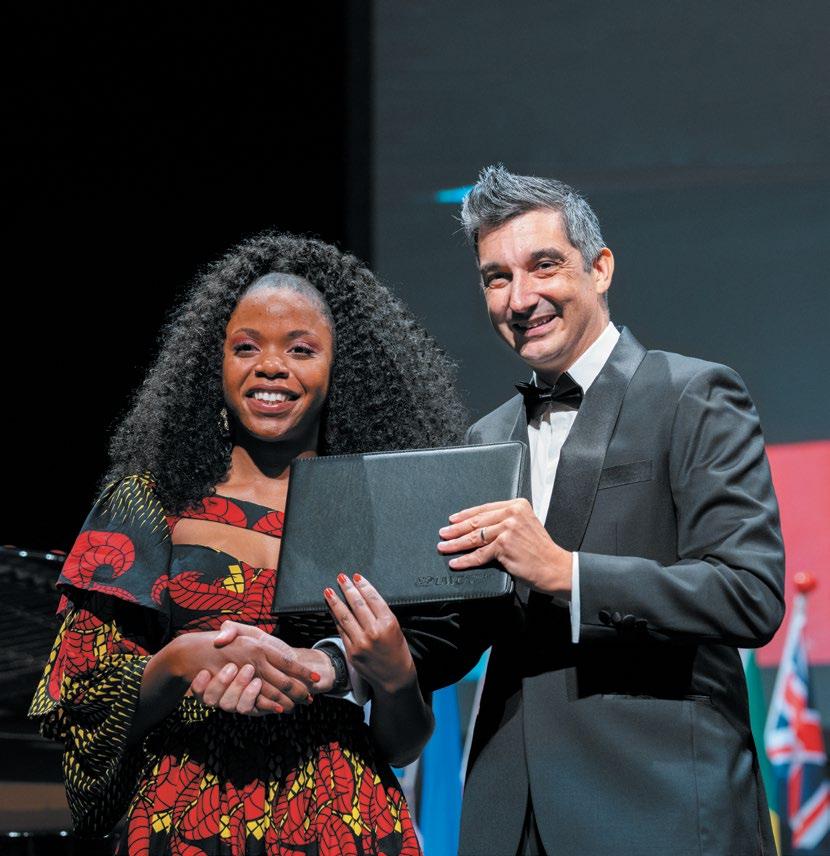
UWCSEA Dover is registered by the Private Education Institution (PEI), part of SkillsFuture Singapore (SSG)
PEI Registration No. 197000825H
PEI Registration Period 18 July 2023–17 July 2027 | Charity Registration No. 00142
UWCSEA East is registered by the Private Education Institution (PEI), part of SkillsFuture Singapore (SSG)
PEI Registration No. 200801795N
PEI Registration Period 10 March 2023–9 March 2027 | Charity Registration No. 002104